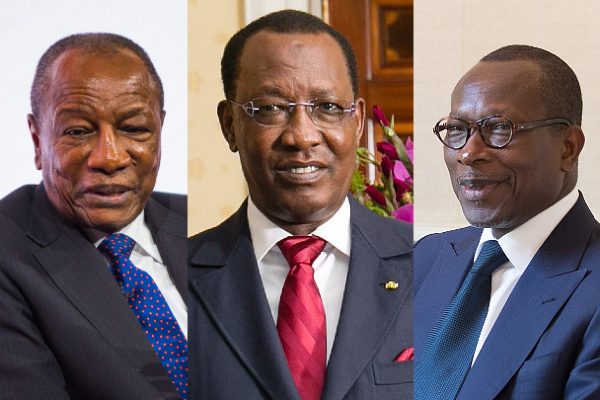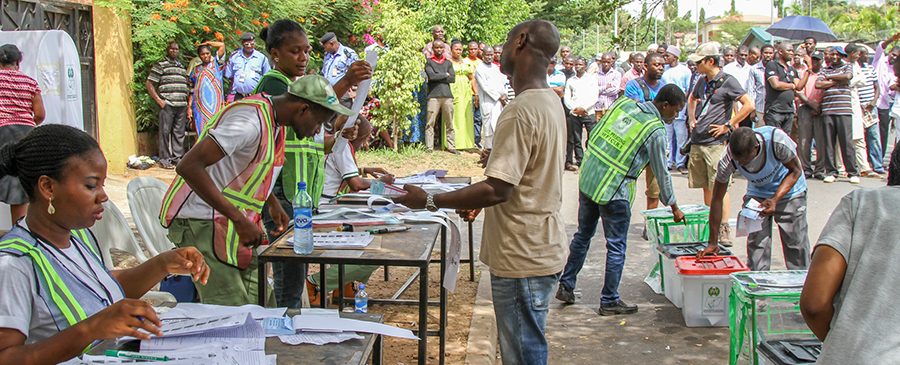
Voting in progress during the 2015 Nigerian election. (Photo: U.S. Embassy / Idika Onyukwu)
Democracy and security in Africa are closely intertwined. How leaders come to power and to whom they are accountable have direct implications on citizen security. In Africa, many conflicts are born from the inability to peacefully resolve issues of power sharing, inclusive participation, checks on the abuse of power, and political succession. Recent trends involving the evasion of term limits, militaries intervening in politics, incumbents using security actors for political ends, and regional bodies failing to uphold democratic norms are further shaping Africa’s security environment. Drawing from Africa’s wide range of political systems, these Africa Center analyses unpack the many layers of the complex governance-security relationship.
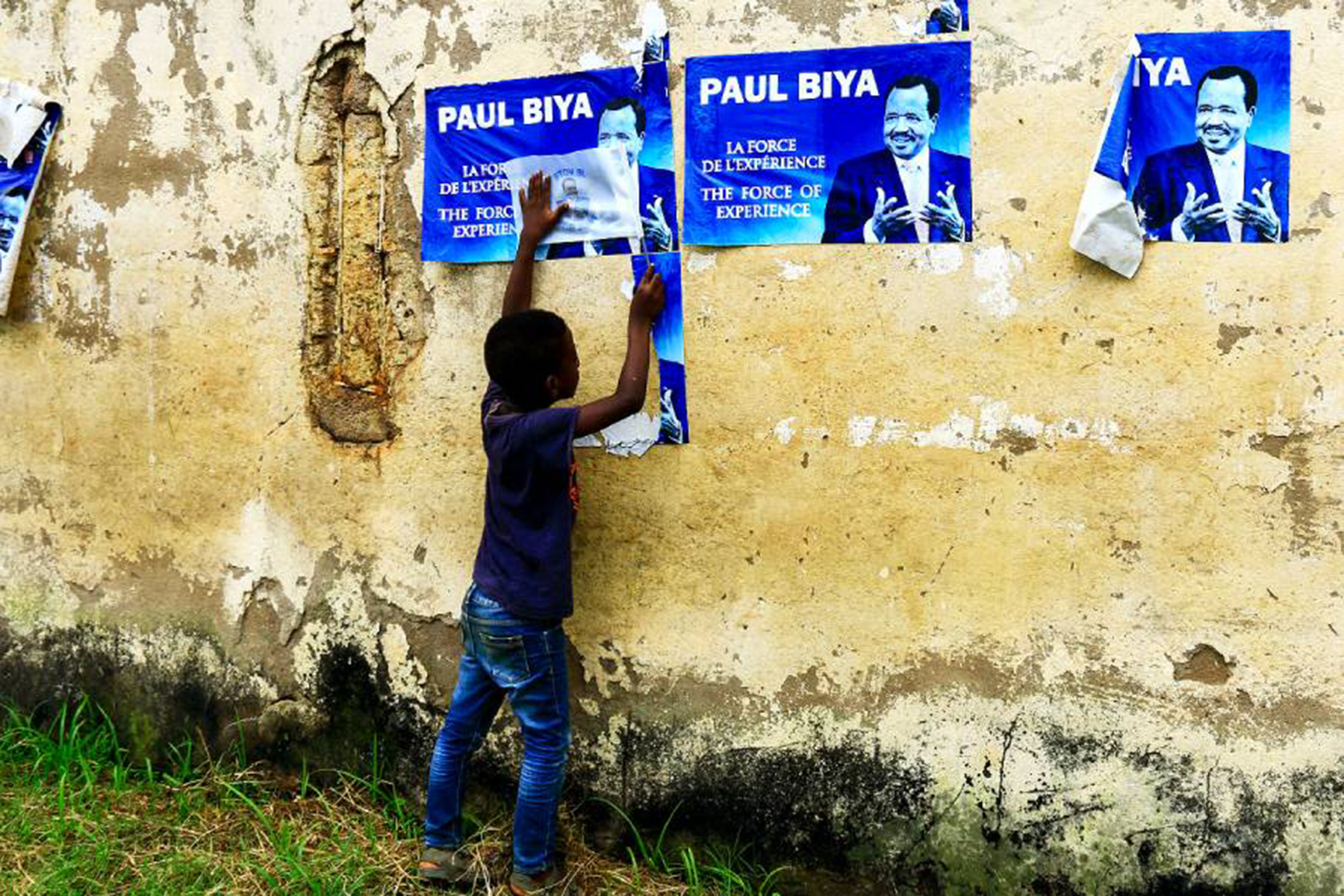
Spotlight
Africa’s 2025 Elections: A Test of Credibility to Uphold Democratic Norms
Democratic progress will require policymakers and journalists to recognize and prize genuine processes of democratic participation within Africa’s wide ranging 2025 electoral line up.
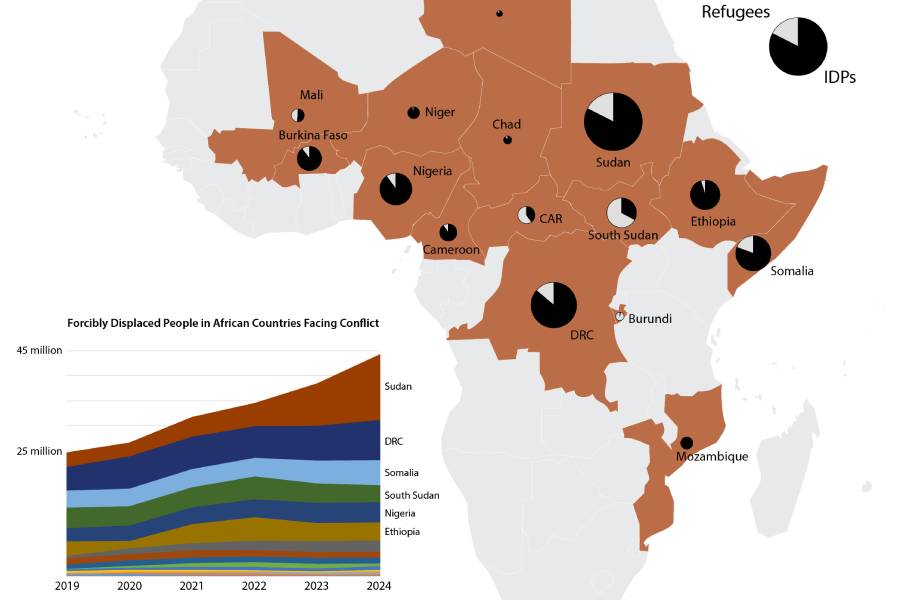
Infographic
Africa’s 2024 Security Trends in 10 Graphics
Africa’s persisting conflicts are compounding crises of governance on the continent, straining already fragile regions and opening the door to foreign exploitation through proxy forces, resource trafficking, and information manipulation.
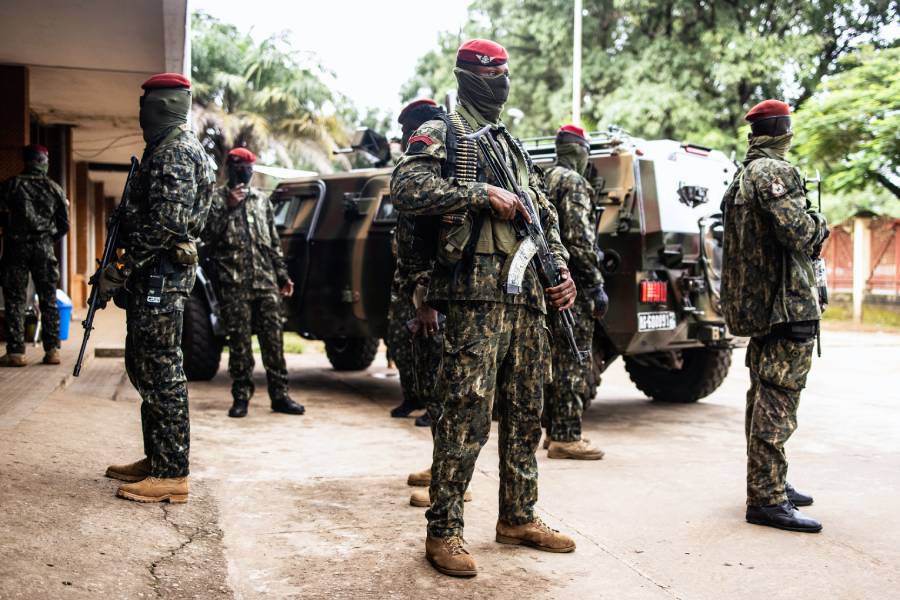
Spotlight
A Stagnant Transition in Guinea
The Guinean junta’s growing repression and intolerance for dissent risk derailing the promised transition back to civilian government while deepening the country’s humanitarian crisis.
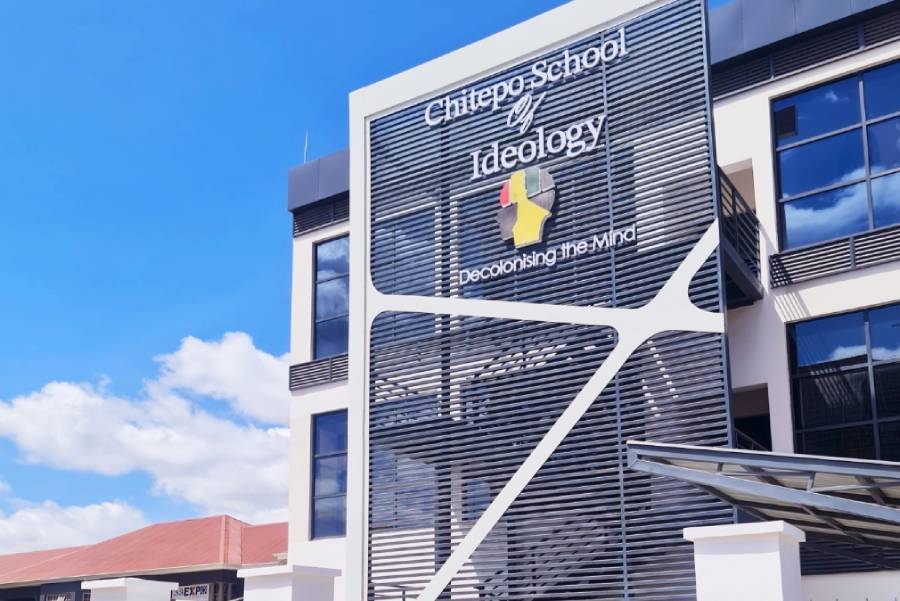
Spotlight
China Escalates Its Political Party Training in Africa
China promotes its dominant party model in Africa through a suite of training programs for party and government officials even though this model is antithetical to Africans’ preference for multiparty democracy.
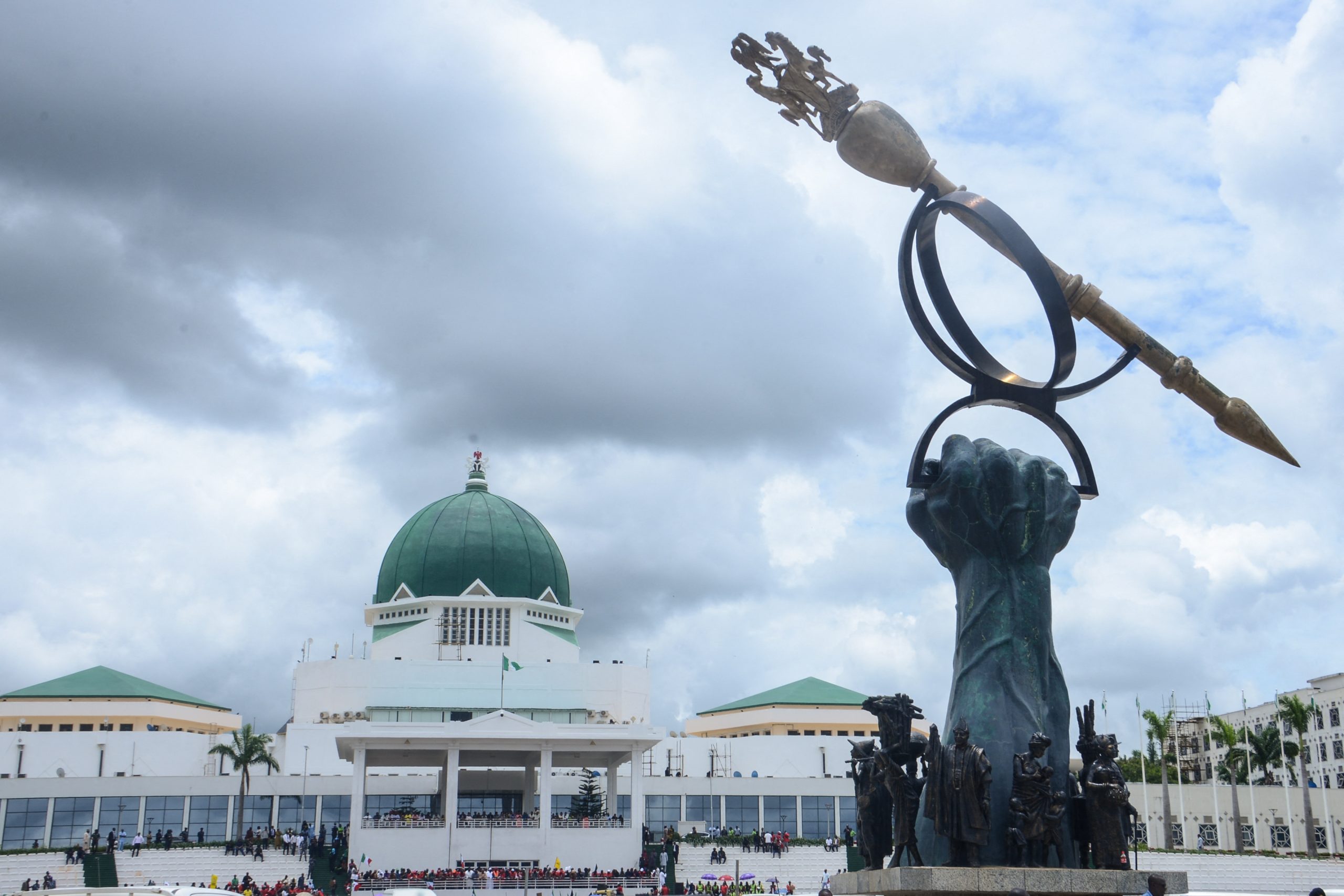
Spotlight
How Africa’s Legislatures Can Improve Security
Legislatures play an integral role in advancing national security by ensuring priorities align with citizen interests, budgets are allocated to meet priorities, and adequate oversight exists for the effective use of these resources.
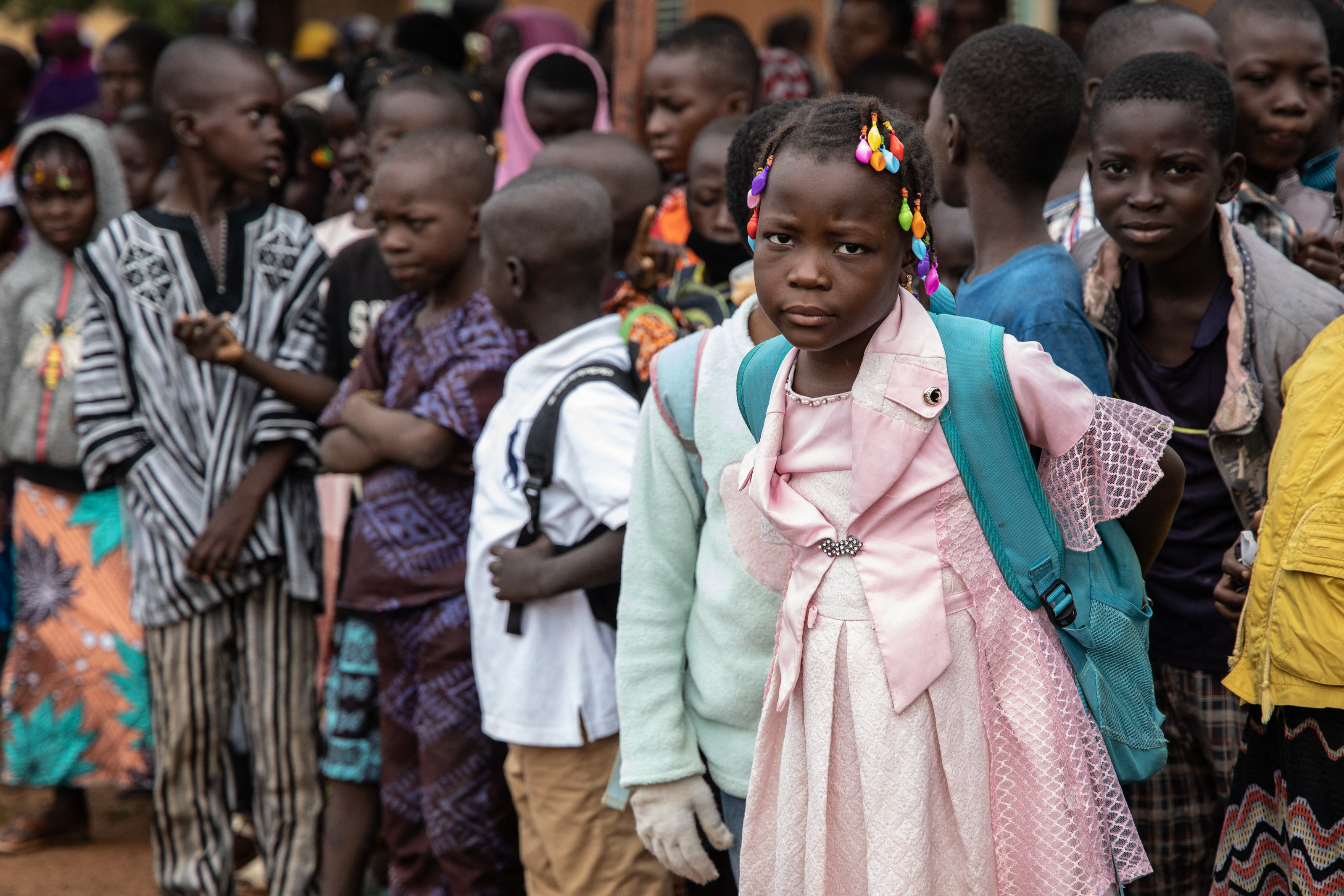
Spotlight
Culture, Democracy, and the Fight against Violent Extremism
Strengthening democratic institutions and amplifying traditional African values to promote social cohesion and consensus goes hand in hand with the fight against violent extremism.
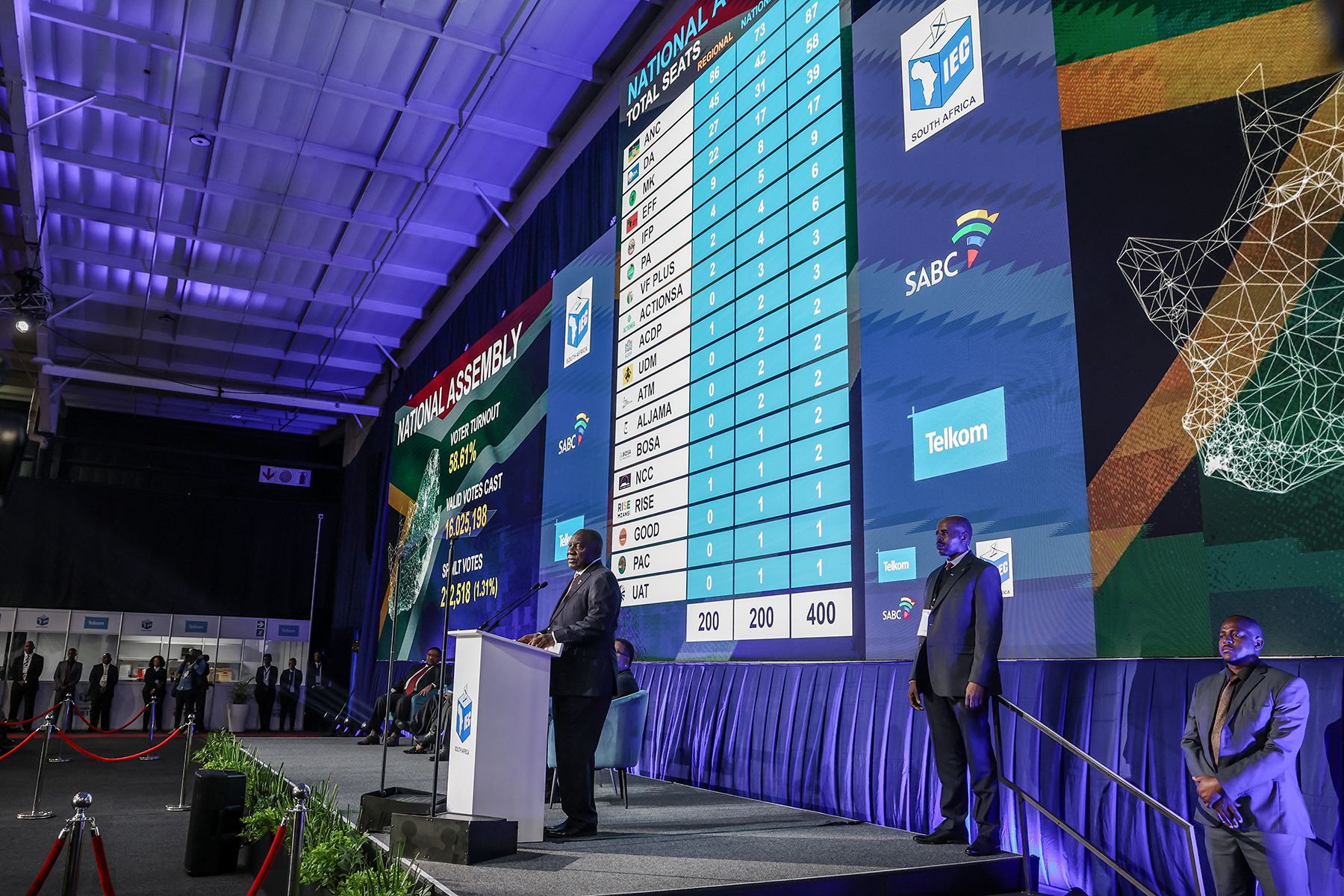
Spotlight
South Africa’s Seismic Political Shift
South Africa’s pivotal election has thrust the country into uncharted waters. To navigate the opportunities and risks, South Africa will require leaders putting country above party, compromise, and adherence to democratic principles.
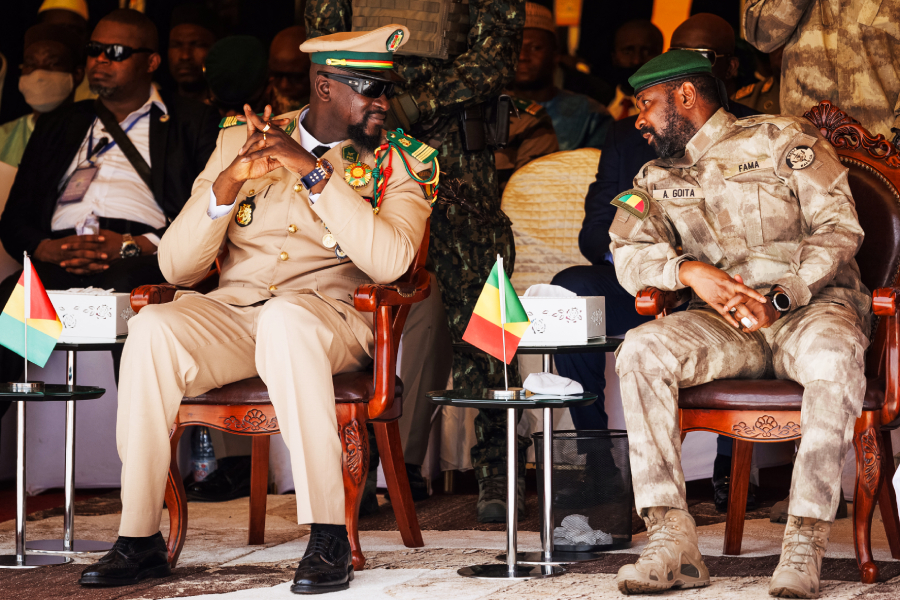
Spotlight
Accommodating Africa’s Juntas Amplifies Insecurity
In addition to undermining democracy, accommodating Africa’s military coups will exacerbate security, economic, and humanitarian concerns.
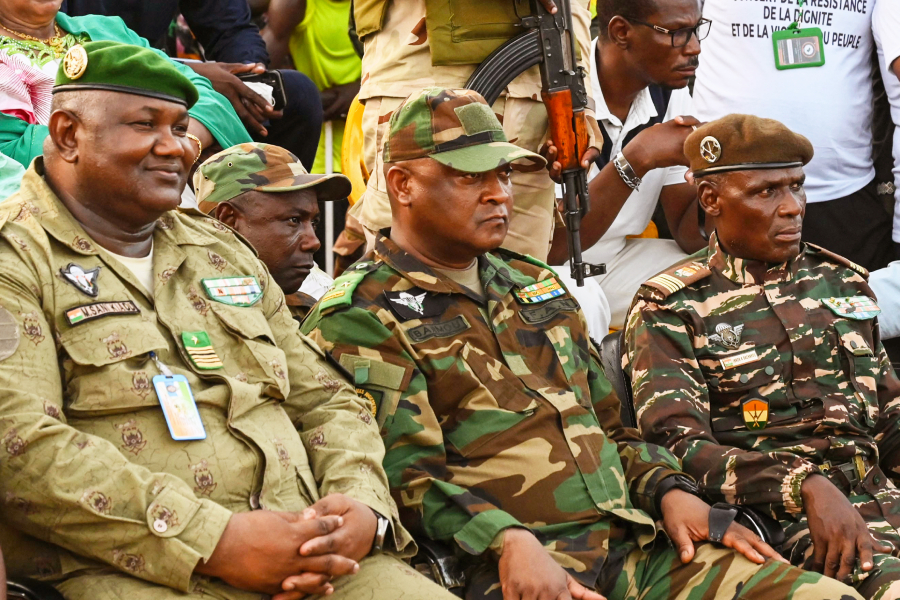
Infographic
Niger Coup Reversing Hard-Earned Gains
After noteworthy gains in the previous decade under democratically elected governments, the derailing of Niger’s constitutional order by the military coup in July 2023 has resulted in a deterioration in security, economic wellbeing, and agency for Nigerien citizens.
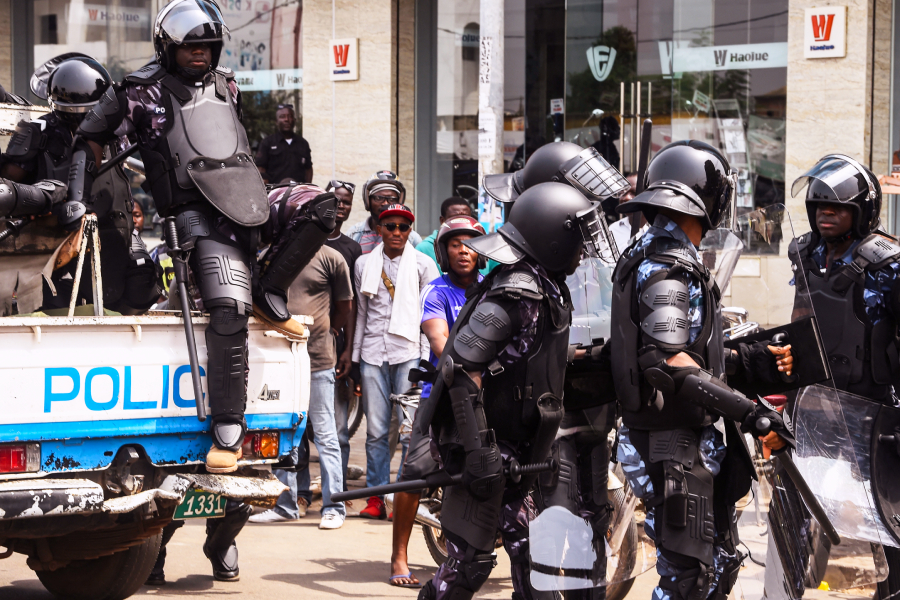
Spotlight
Togo Revises Constitution to Eliminate Term Limits: An Explainer
The ruling party’s revision of the Togolese Constitution eliminates universal suffrage for the presidency while effectively shifting to a parliamentary system that evades presidential term limits.
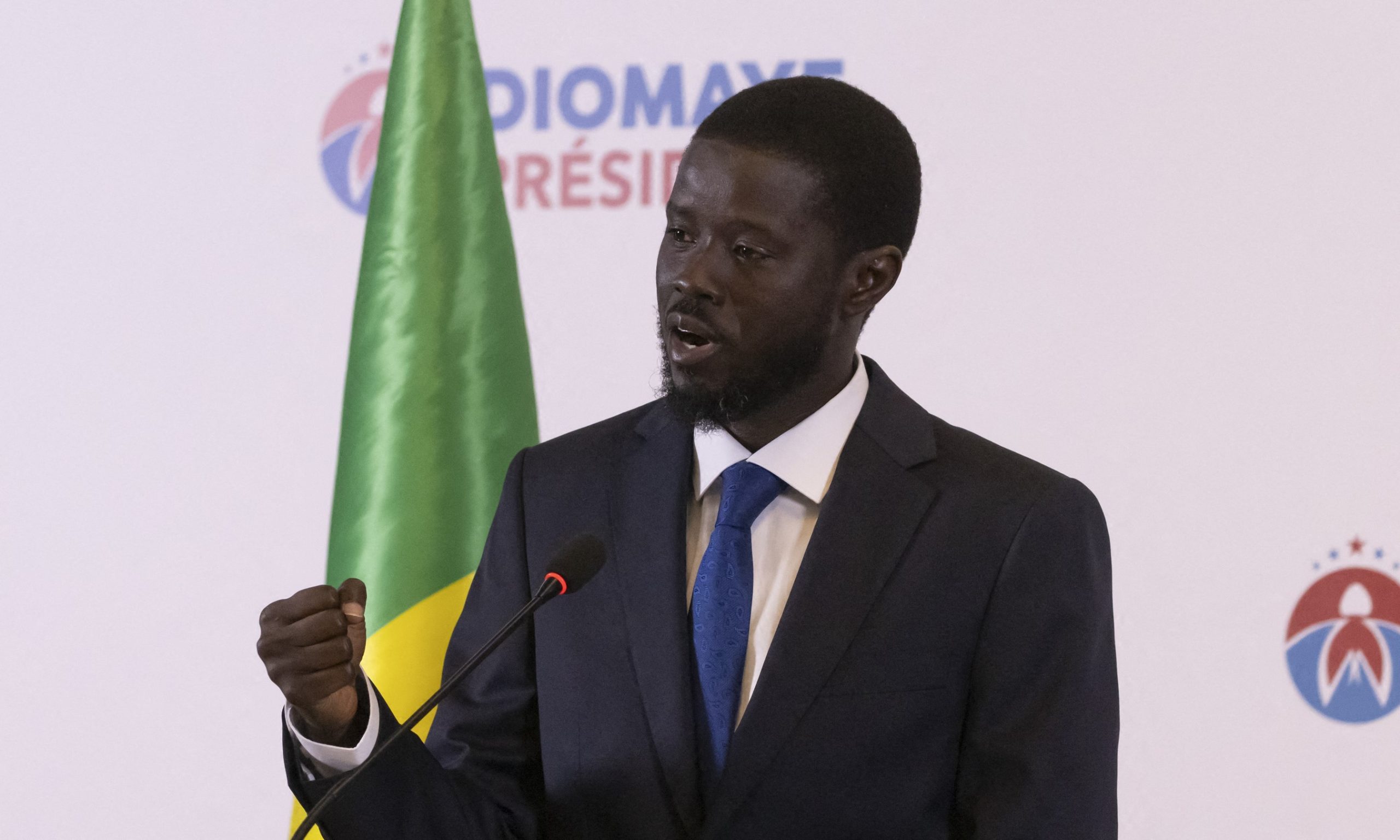
Spotlight
Key Takeaways from Senegal’s Presidential Election
Senegal’s election of Bassirou Faye as President after a tumultuous electoral process reflects the resilience of Senegal’s democratic institutions and presents an opportunity to strengthen transparent governance and economic equity.
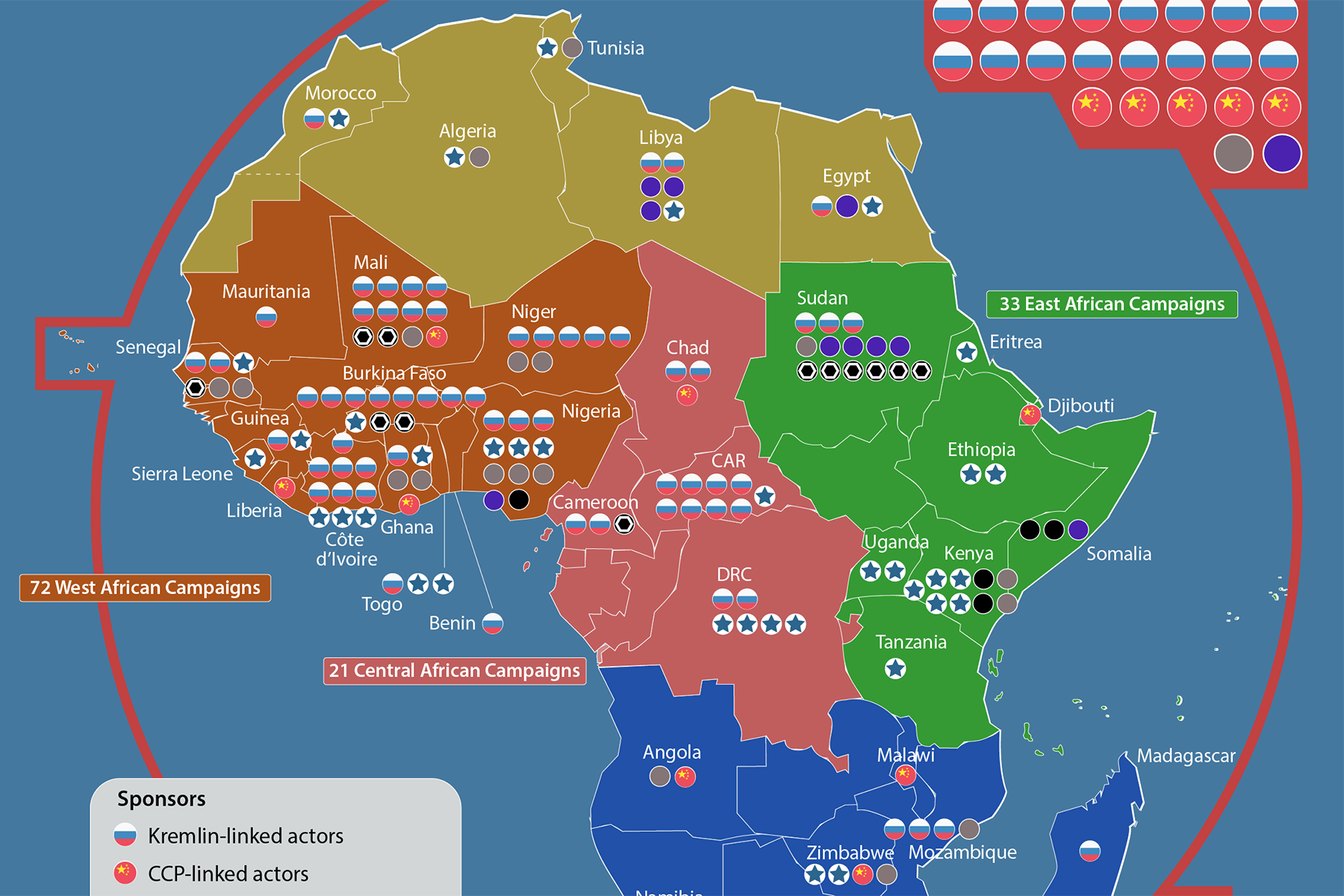
Infographic
Mapping a Surge of Disinformation in Africa
Disinformation campaigns seeking to manipulate African information systems have surged nearly fourfold since 2022, triggering destabilizing and antidemocratic consequences.
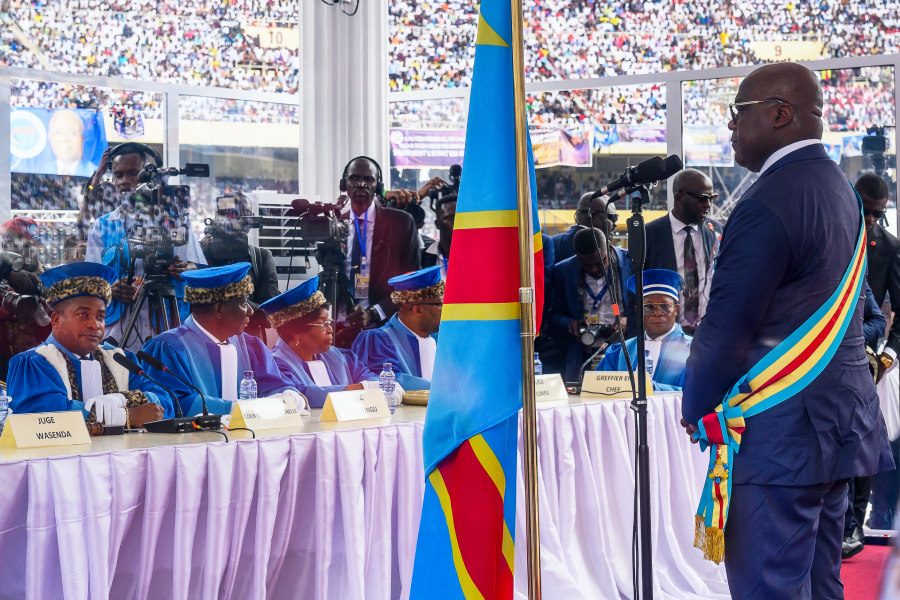
Spotlight
Regime Capture of the Courts in Africa
By co-opting apex courts, incumbents bent on regime survival can entrench themselves in power while maintaining what their citizens consider to be sham democracies.
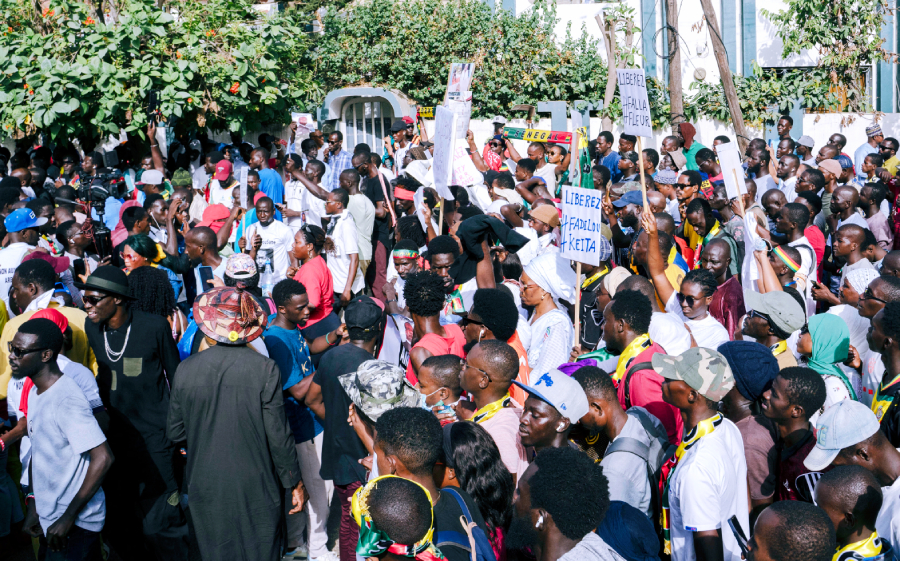
Spotlight
Making Sense of Senegal’s Constitutional Crisis
The unprecedented attempt by Senegal’s President Macky Sall to postpone presidential elections is legally dubious and has thrown the country into a constitutional crisis that will test its democratic institutions.
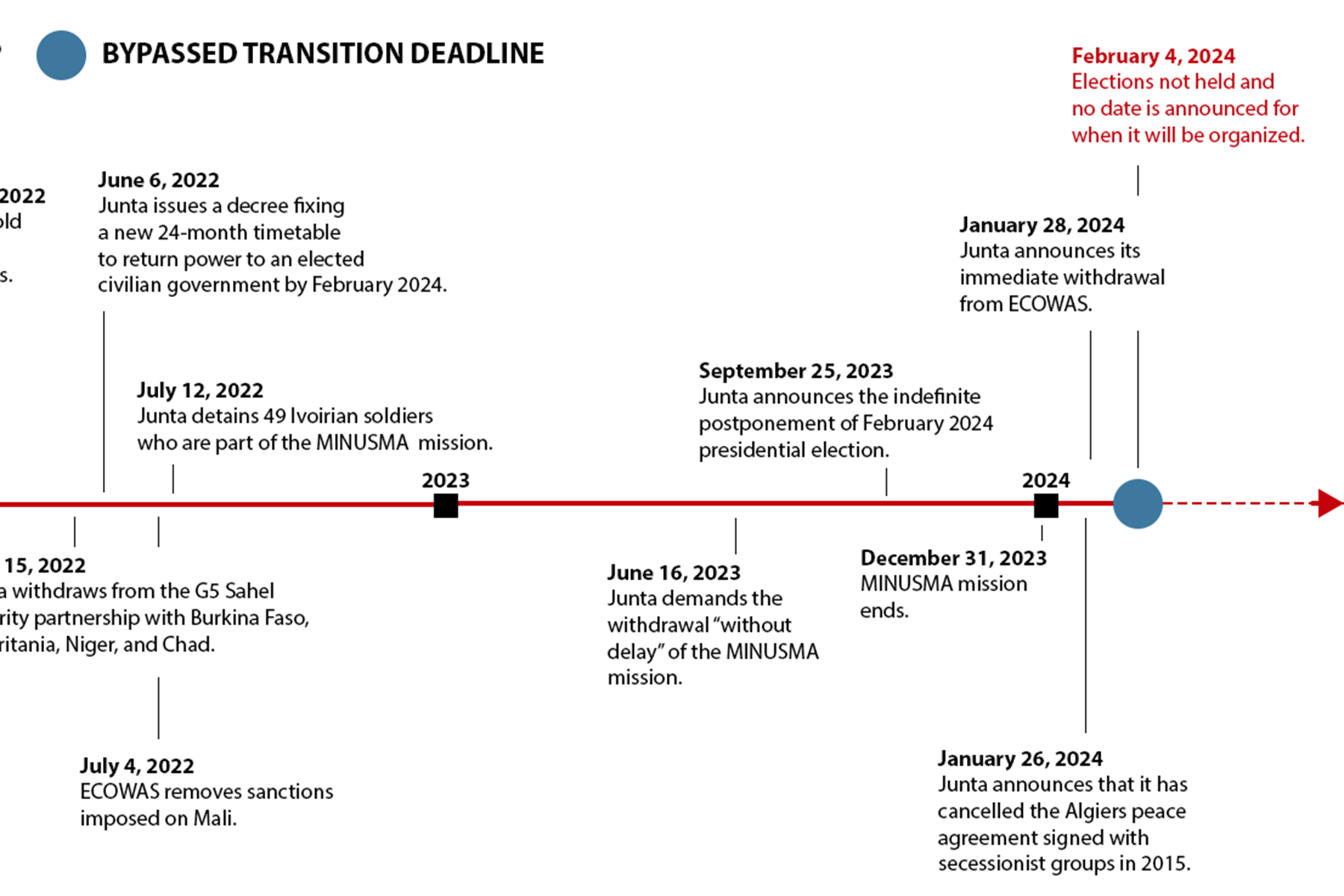
Infographic
Assessing Mali’s Non-Transition
The Malian military junta has repeatedly refused to honor its commitments to transition back to a democratic civilian government, resulting in mounting security and economic costs to citizens.
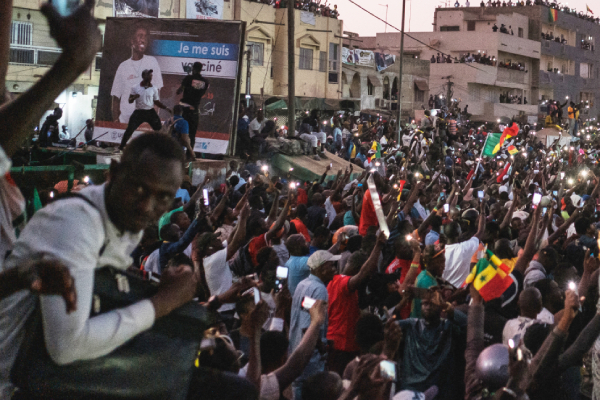
Spotlight
Africa’s 2024 Elections: Challenges and Opportunities to Regain Democratic Momentum
Africa’s multifaceted 2024 electoral docket provides opportunities to strengthen multipartyism, transition back to constitutionalism following coups, and rebuff perfunctory exercises.
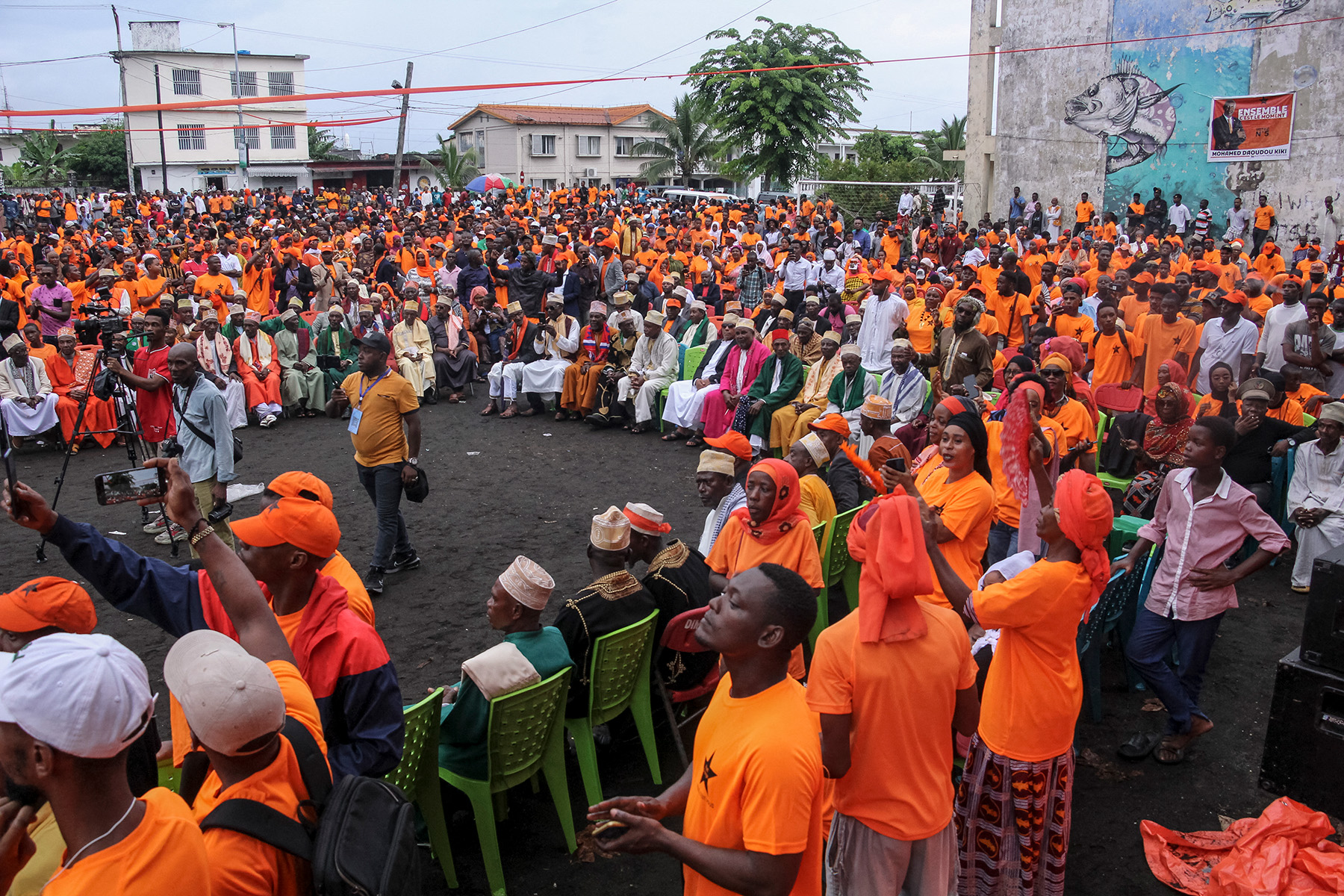
Spotlight
Comoros Election Exercise Promises More of the Same
President Azali Assoumani’s undermining of an acclaimed power-sharing agreement in the three-island archipelago has been marked by growing political repression and non-competitive elections.
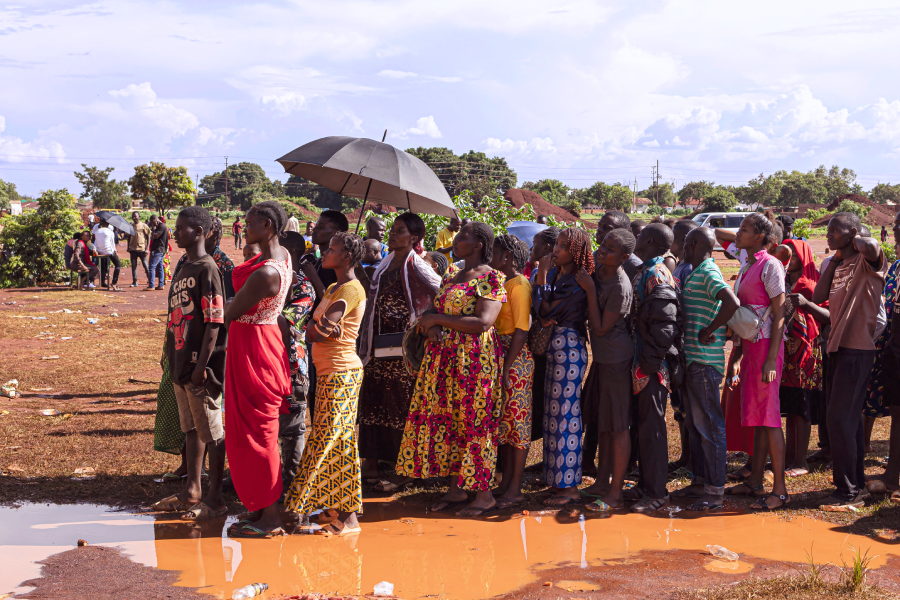
Spotlight
Elections in the Democratic Republic of the Congo: A Persistent Crisis of Legitimacy
The Democratic Republic of the Congo’s chaotic elections failed to break the country’s long legacy of fraudulent polls and plunged the government into a fresh crisis of legitimacy.
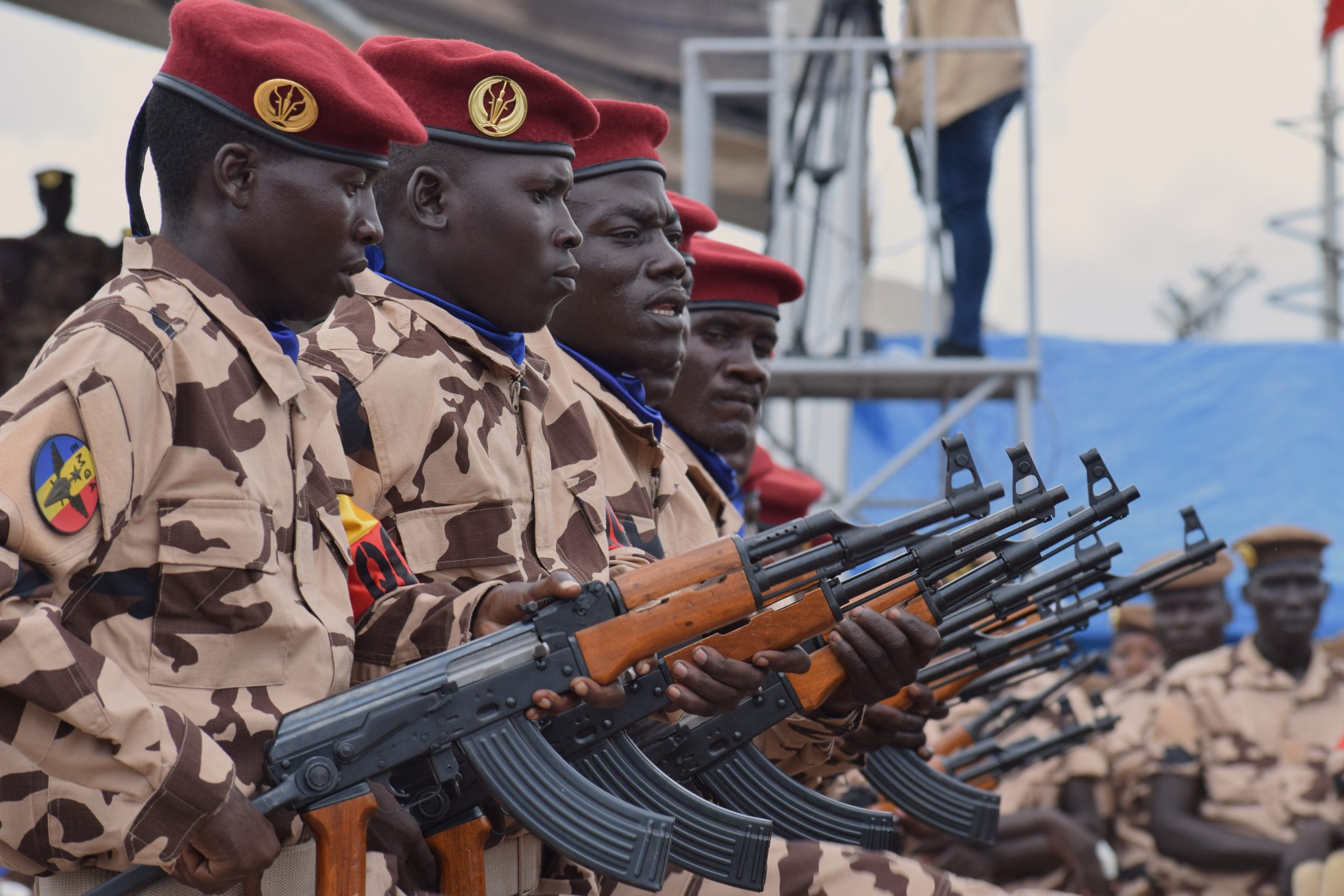
Spotlight
Chad’s Constitutional Referendum Promises a Transition without Change—or Stability
The highly controlled constitutional referendum organized by Mahamat Déby’s military junta appears intended to provide a degree of credibility to the military’s plans to hold power indefinitely.
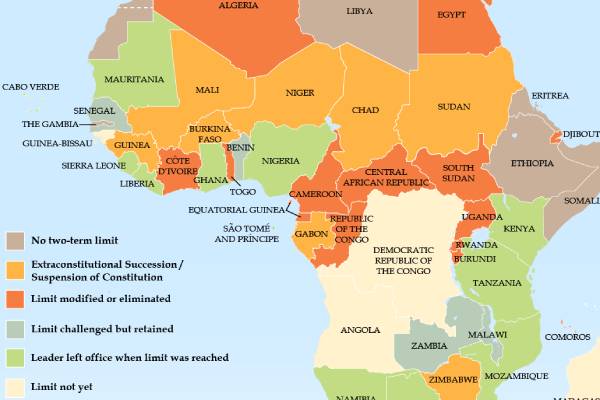
Infographic
Term Limit Evasions and Coups in Africa:
Two Sides of the Same Coin
Term limit evasions are at the root of a host of governance dysfunctions in Africa and are linked to higher levels of autocracy, corruption, conflict, and propensity for coups.
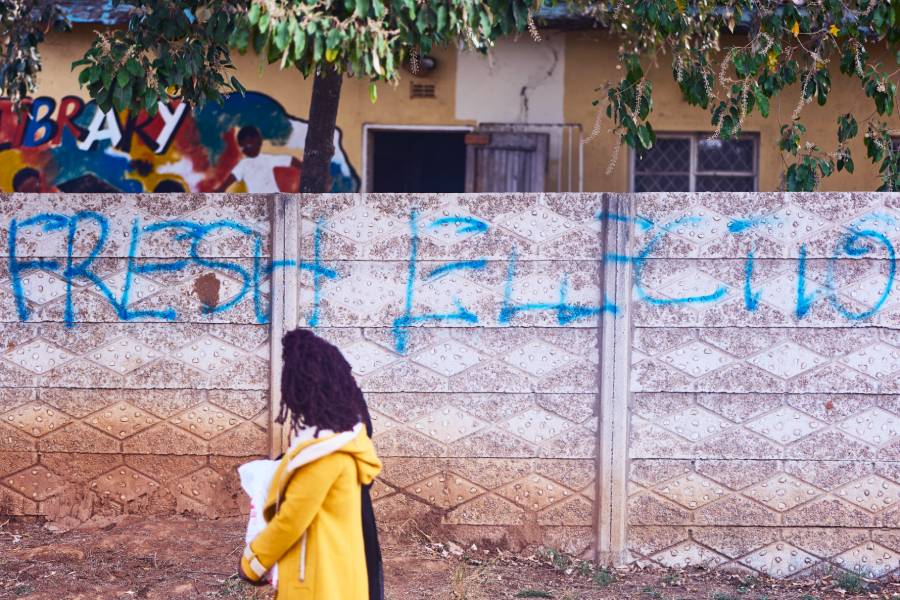
Spotlight
SADC Attempts to Navigate Zimbabwe’s Disputed Election
Citizen-led efforts to remedy the fraudulent Zimbabwean election are testing SADC’s commitment to upholding democratic electoral standards in Southern Africa.
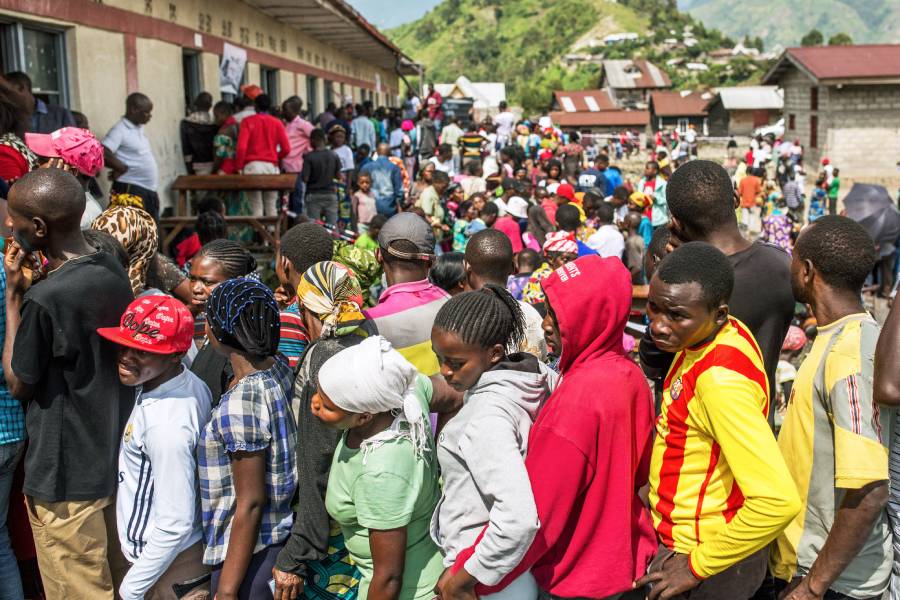
Spotlight
The Democratic Republic of the Congo’s Quest for Democracy Faces a New Test
To break the Democratic Republic of the Congo’s long legacy of stolen elections, the country’s independent oversight institutions, civil society, and media will need the backing of SADC and international democratic actors.
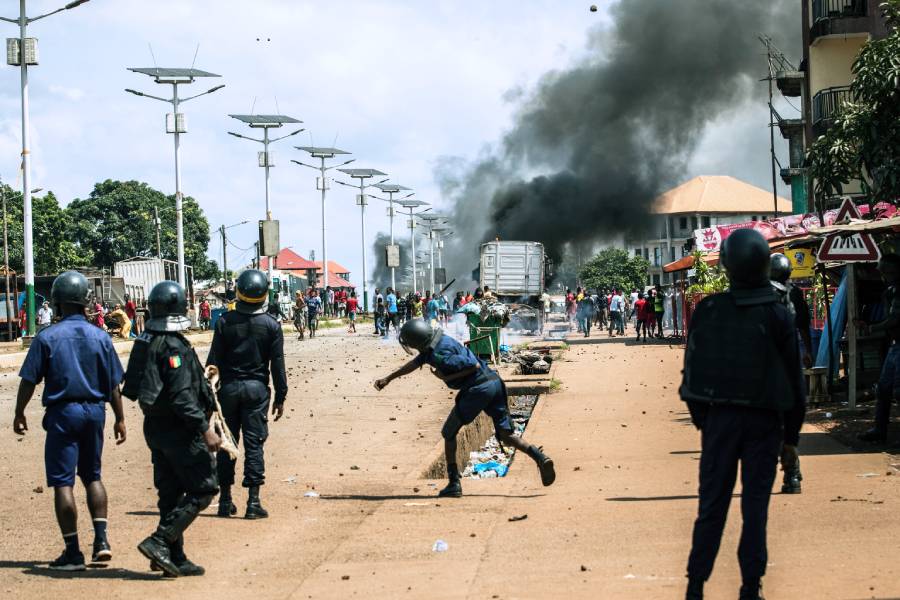
Publication
Oversight and Accountability to Improve Security Sector Governance in Africa
Oversight, accountability, and governance of the security sector are essential ingredients to a capable and effective force, mitigating infractions and contributing to a learning environment that improves future practices.
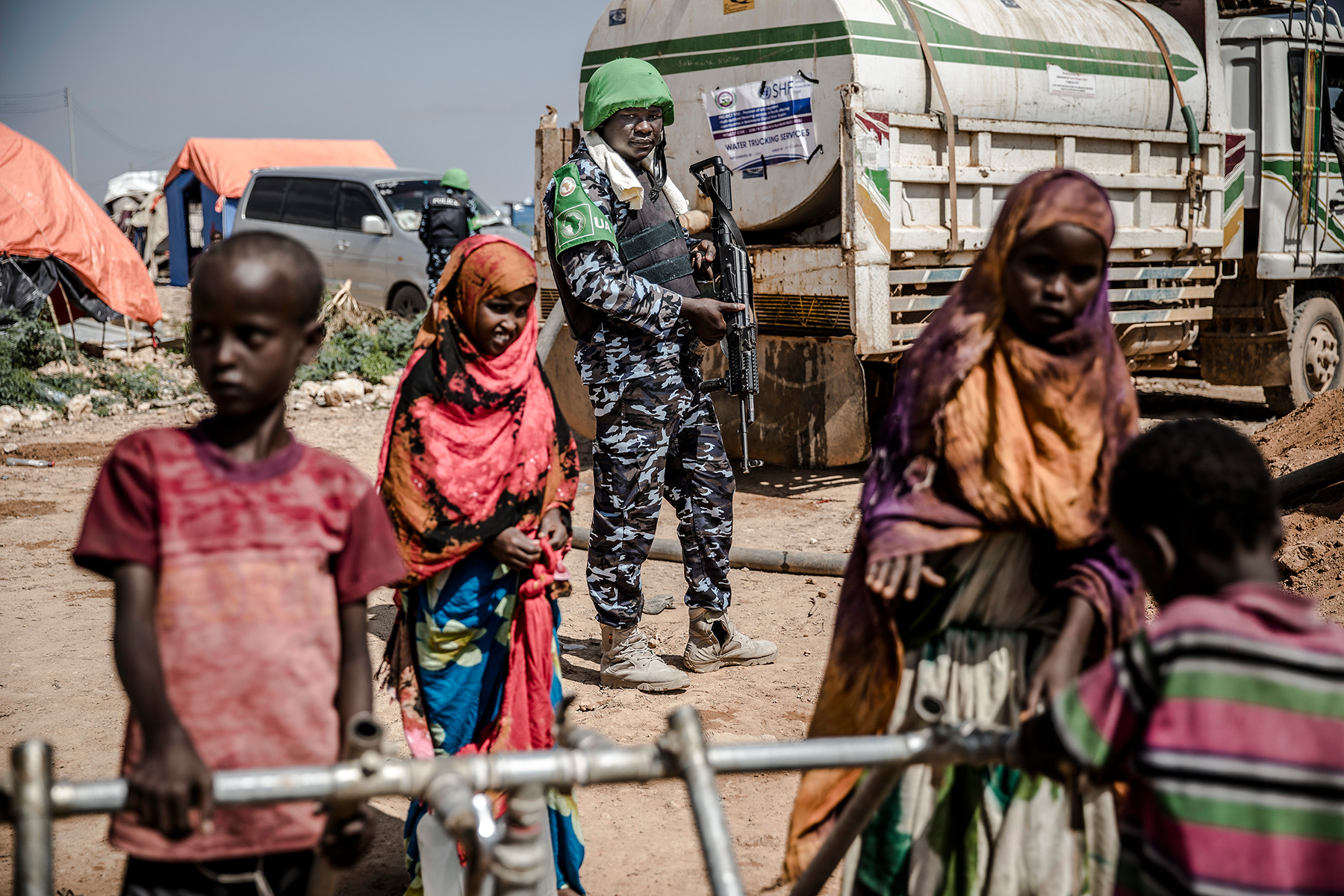
Spotlight
African-Led Peace Operations: A Crucial Tool for Peace and Security
African-led peace operations have been vital tools for managing Africa’s complex array of security challenges, though continued reform is needed to intervene more decisively in the continent’s most devastating conflicts.
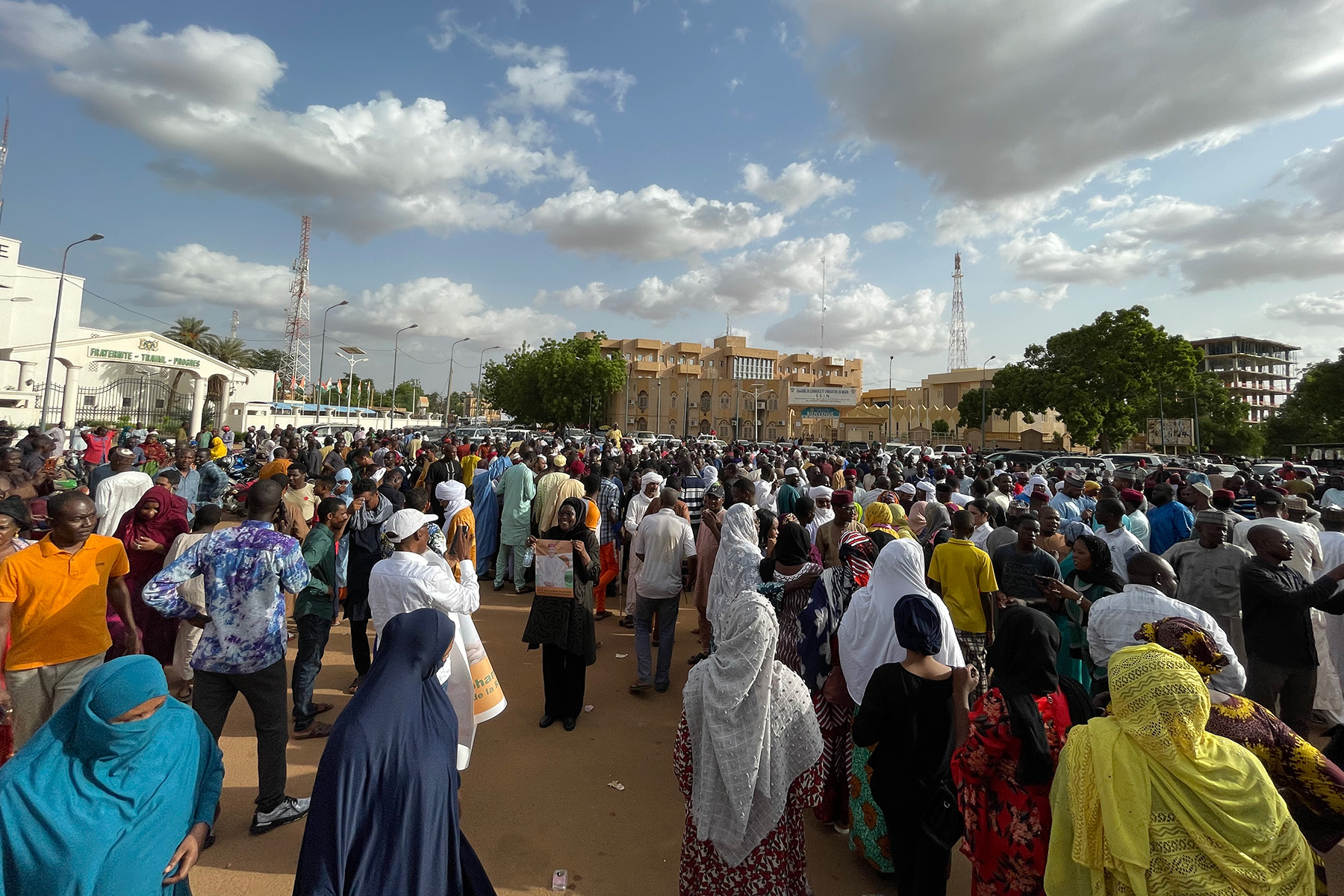
Spotlight
Attempted Coup in Niger: Backgrounder
The attempted military coup in Niger threatens to undermine the relative progress the country has made under its civilian democratic leaders and amplifies Niger’s risks for insecurity, economic crises, and political instability.
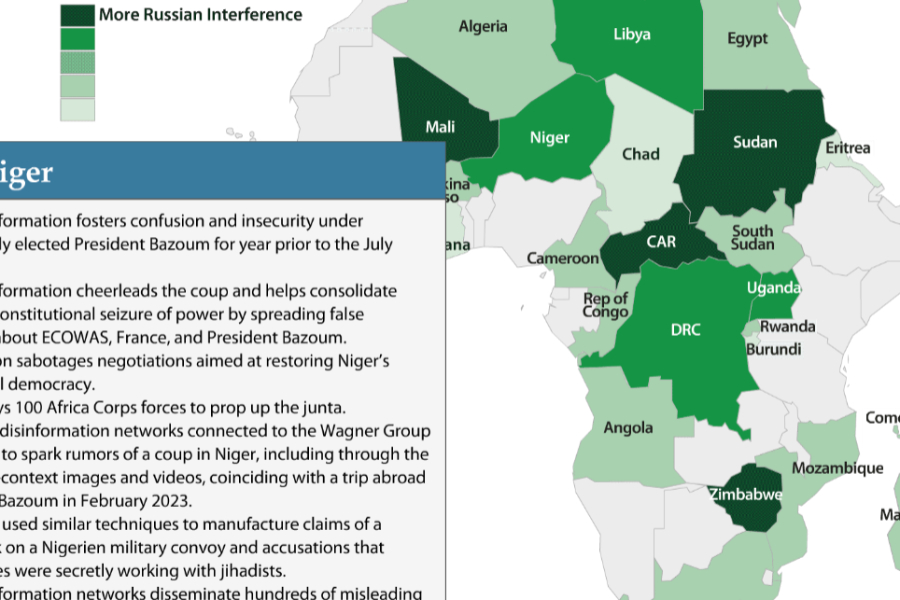
Infographic
Tracking Russian Interference to Derail Democracy in Africa
Systematic efforts by Russia to undercut democracy in Africa have inhibited democratic development in two dozen African countries.
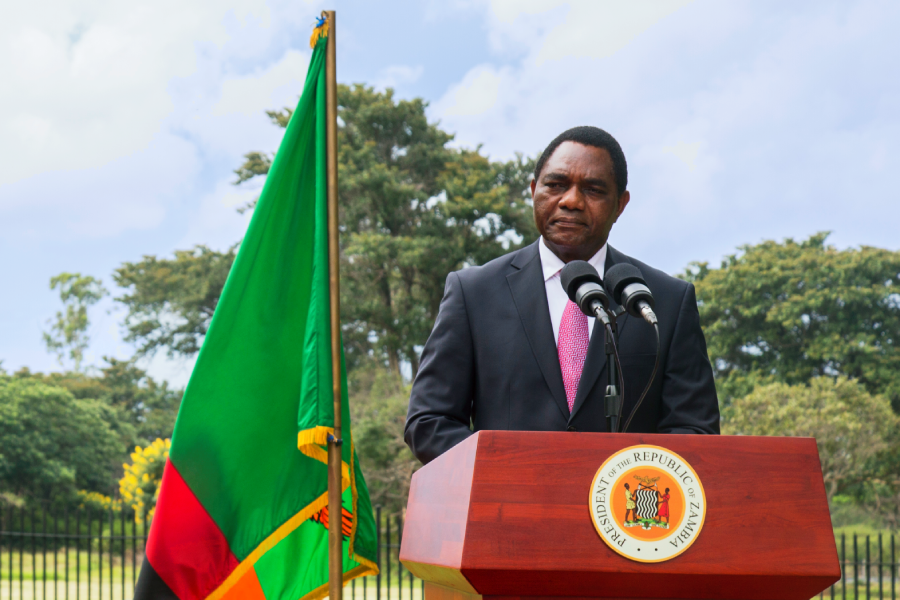
Video
Zambia’s President Hichilema Says Security Requires Whole of Society Effort
Effective management of security resources is a pillar to security, good governance, and sustainable development—and a means of building trust in the security sector.
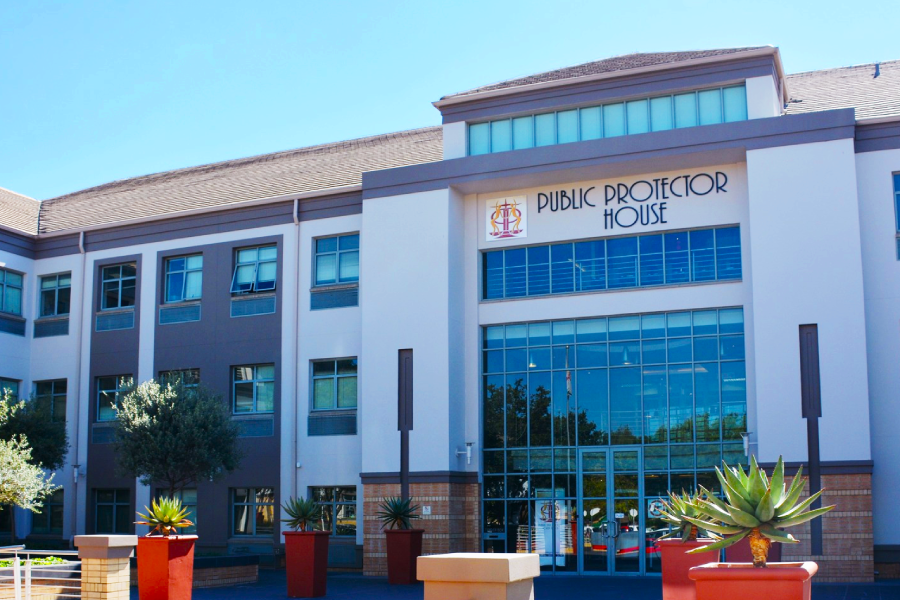
Spotlight
Lessons from South Africa for Holding Leaders Accountable
South Africa’s layered oversight processes afford an institutionalized means of holding senior leaders accountable for allegations of misconduct—and offer insights for upholding the rule of law elsewhere.
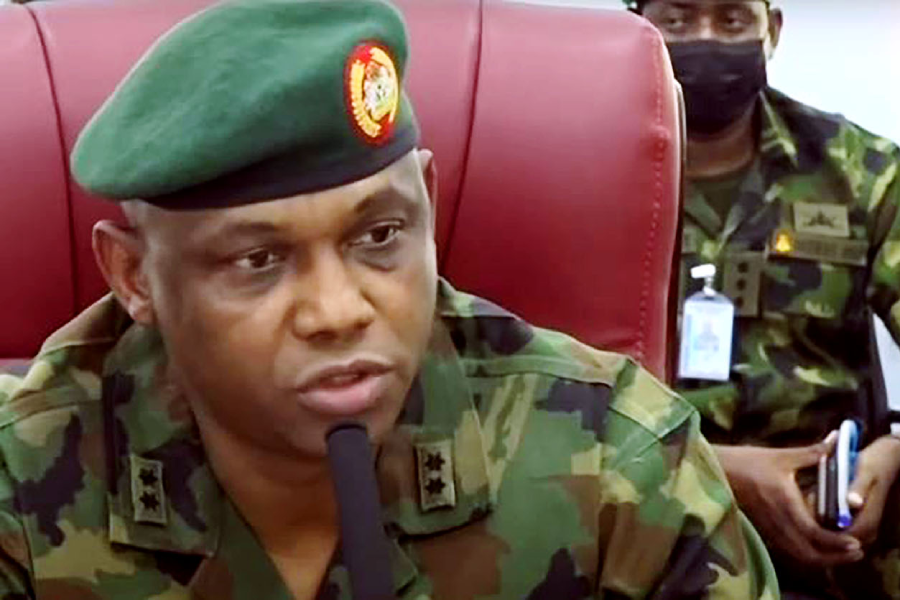
Spotlight
Parliamentary committees that oversee the security sector play an essential role in building accountable, sustainable, transparent, and professional institutions.
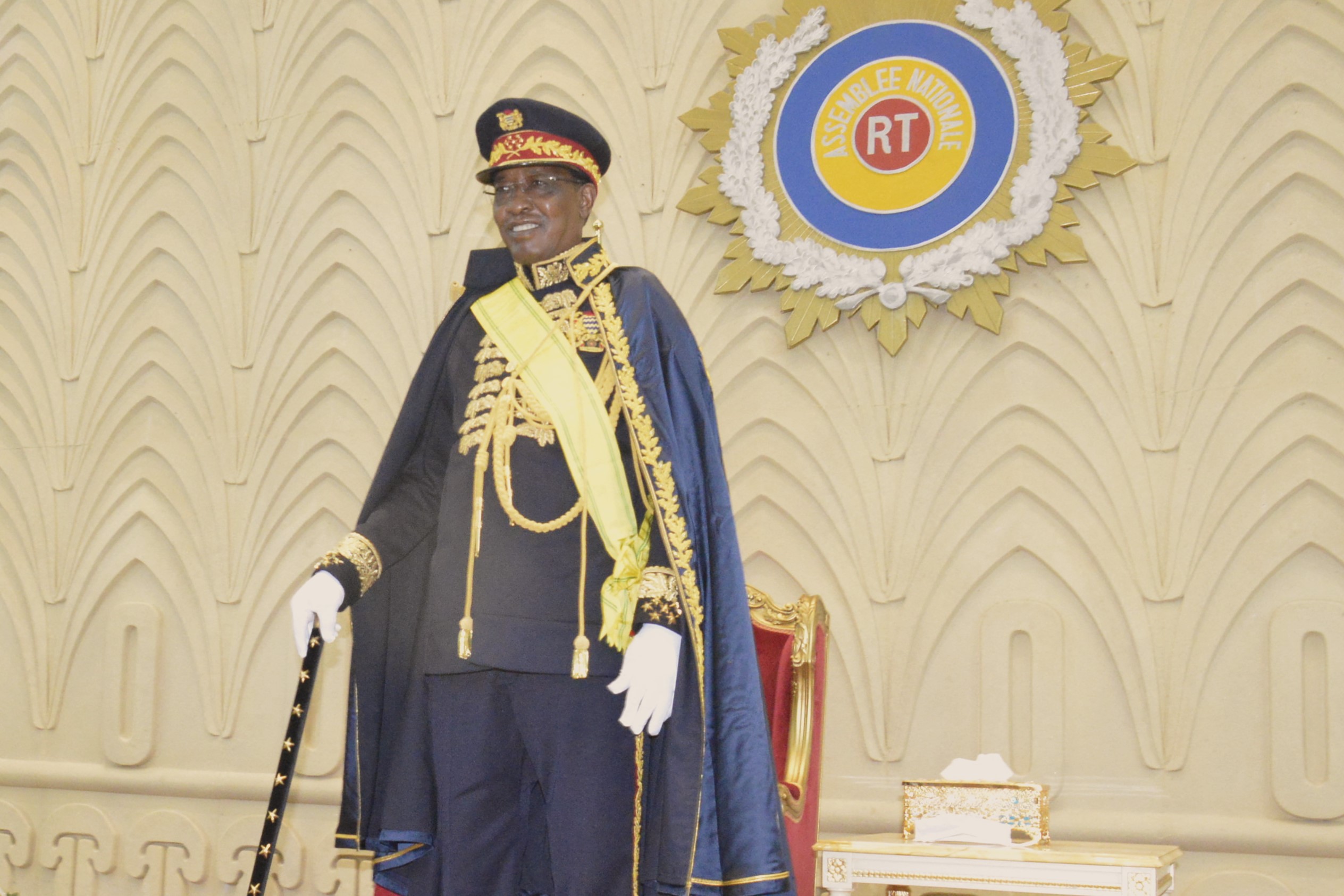
Spotlight
The Persistence of Cults of Personality in African Governance
African leaders who hold power indefinitely often employ cults of personality to consolidate power, demand personal fealty, and systematically undermine independent governance institutions.
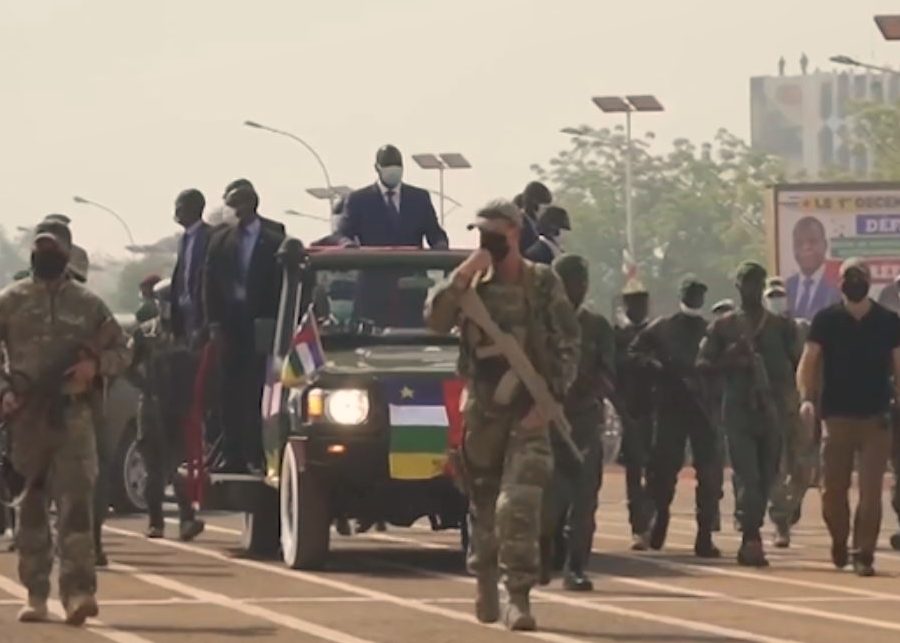
Spotlight
Intervening to Undermine Democracy in Africa: Russia’s Playbook for Influence
Russia has systematically sought to undercut democracy in Africa, both to normalize authoritarianism as well as to create an entry point for Russian influence.
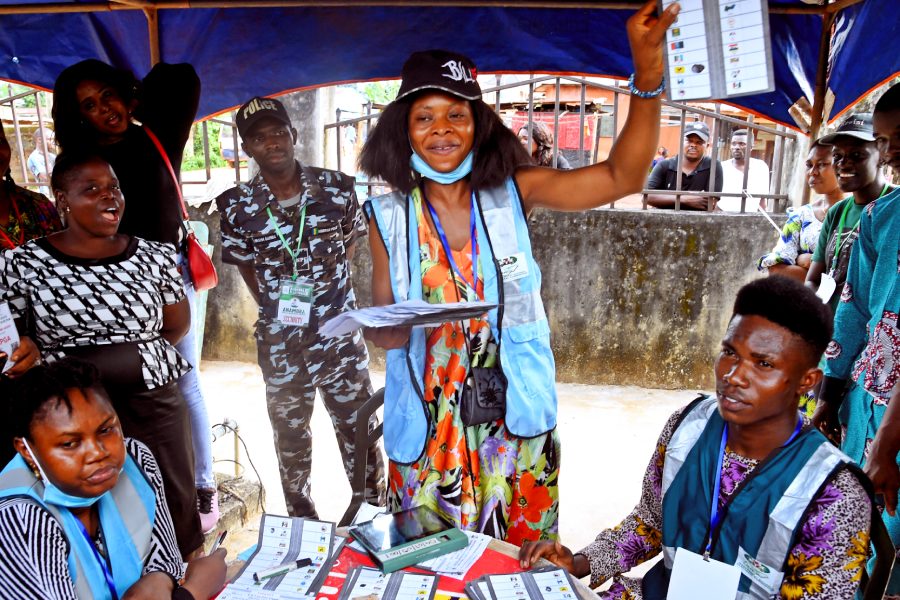
Spotlight
Africa’s 2023 Elections: Democratic Resiliency in the Face of Trials
Despite serious challenges, Africa's youthful electorates vie to have their voices heard so as to shape a more democratic, stable, and prosperous future.
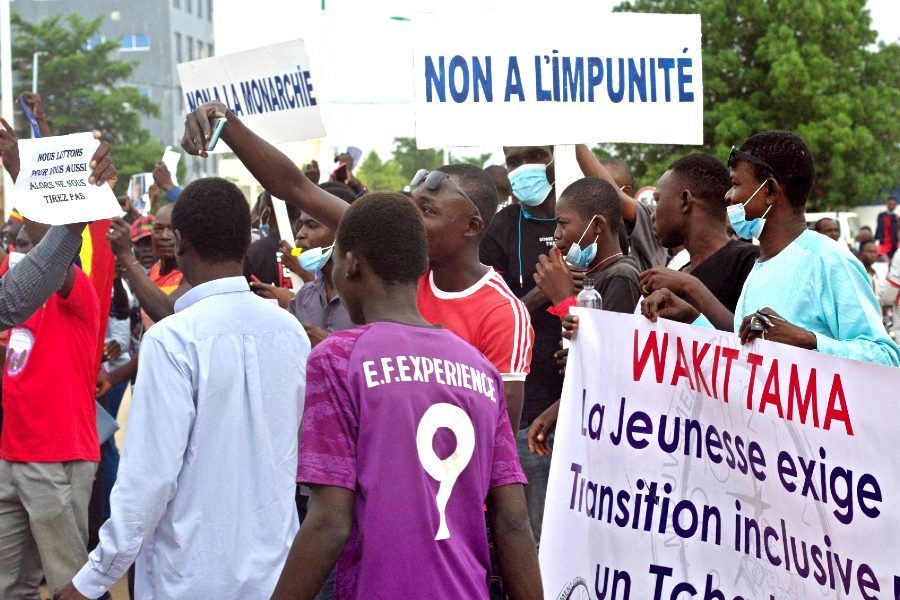
Spotlight
“Transition” Orchestrated by Chad’s Military Goes Awry
The violent crackdown on the peaceful opposition in Chad exposes the coercive intimidation behind the military junta’s unwillingness to facilitate a genuine democratic transition.
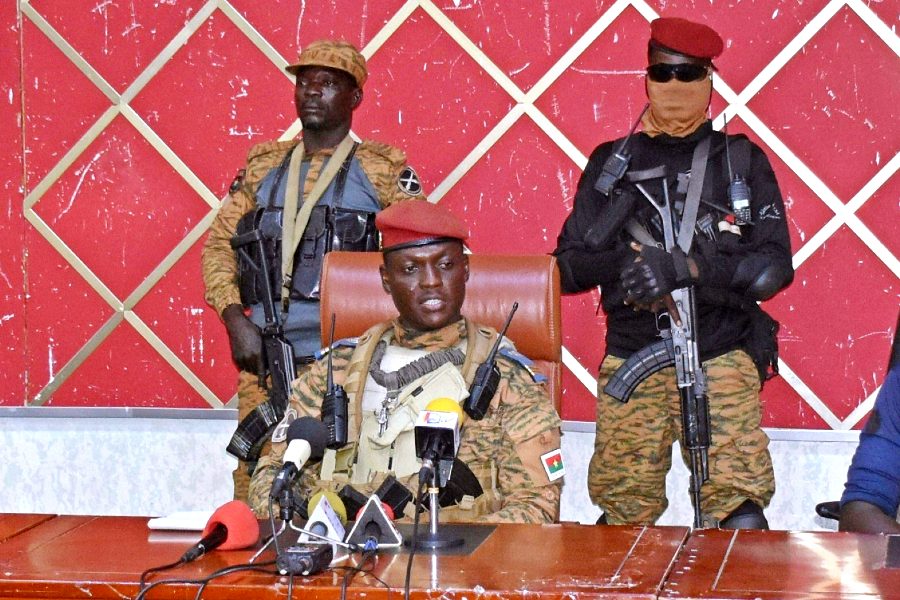
Spotlight
Understanding Burkina Faso’s Latest Coup
Two coups d’état in 9 months mark the latest inflection point in Burkina Faso’s political instability, causing heightened uncertainty as the country faces an escalating militant Islamist threat.
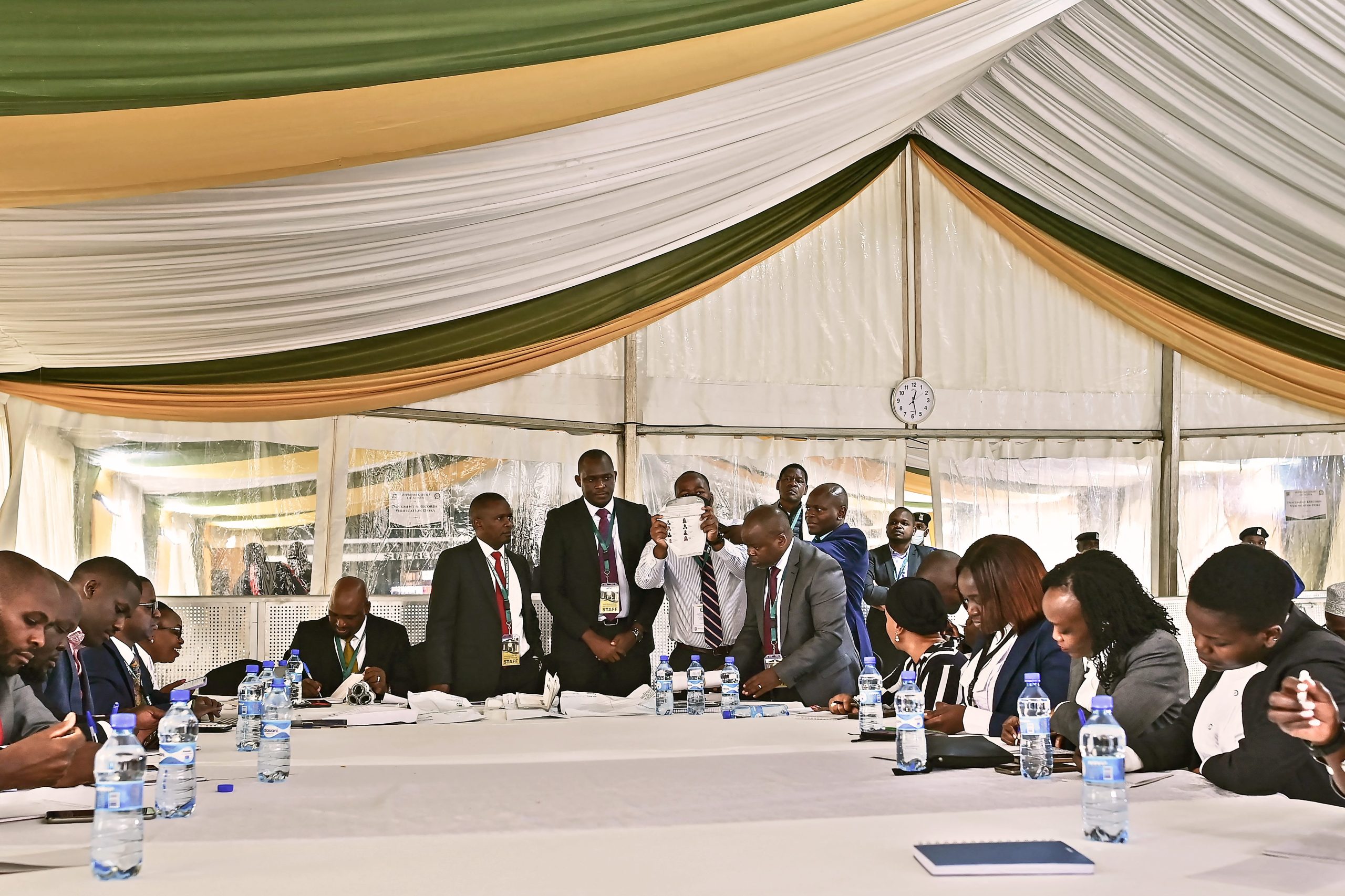
Spotlight
Seven Takeaways from Kenya’s Consequential Election
Despite shortcomings, Kenyans have set a new and higher electoral bar for themselves, their neighbors, and the rest of Africa—demonstrating how closely contested elections can be credibly resolved through sufficiently independent institutions.
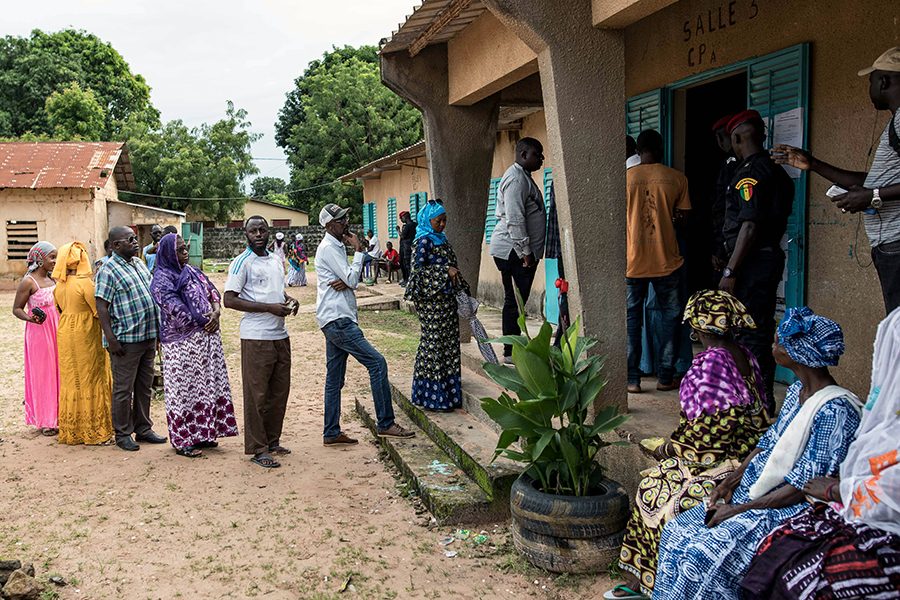
Spotlight
Senegal Pulled Off Another Peaceful Poll. Why This Time the Results Herald a Big Political Shift
Senegal's recent parliamentary election continued a tradition of robust multiparty competition—the results have unprecedented implications for democratic oversight.
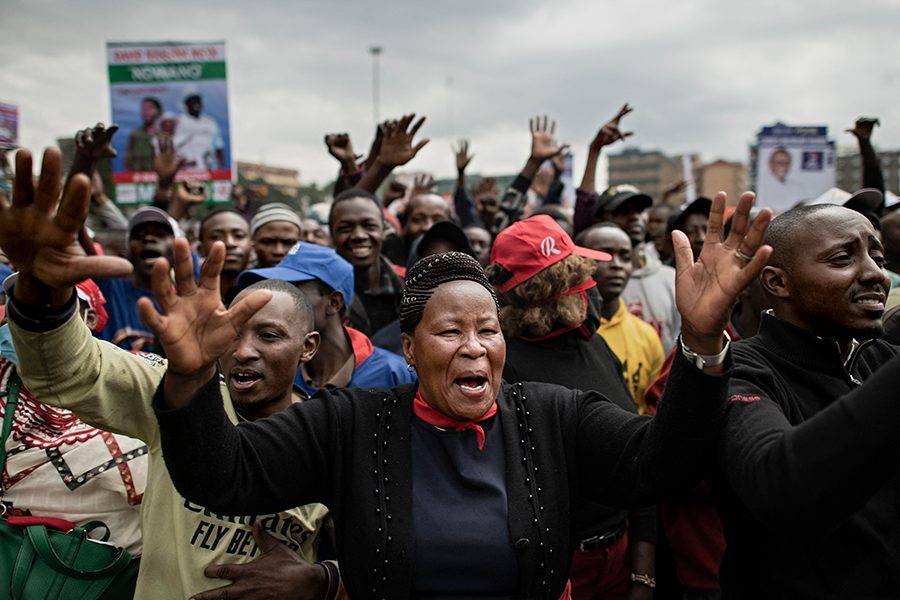
Spotlight
Kenyan Elections—Another Test in the Country’s Democratic Journey
Kenya’s competitive presidential elections reflect hard-earned progress in establishing independent constitutional and judicial guardrails, though a history of electoral violence demands all sides show restraint.
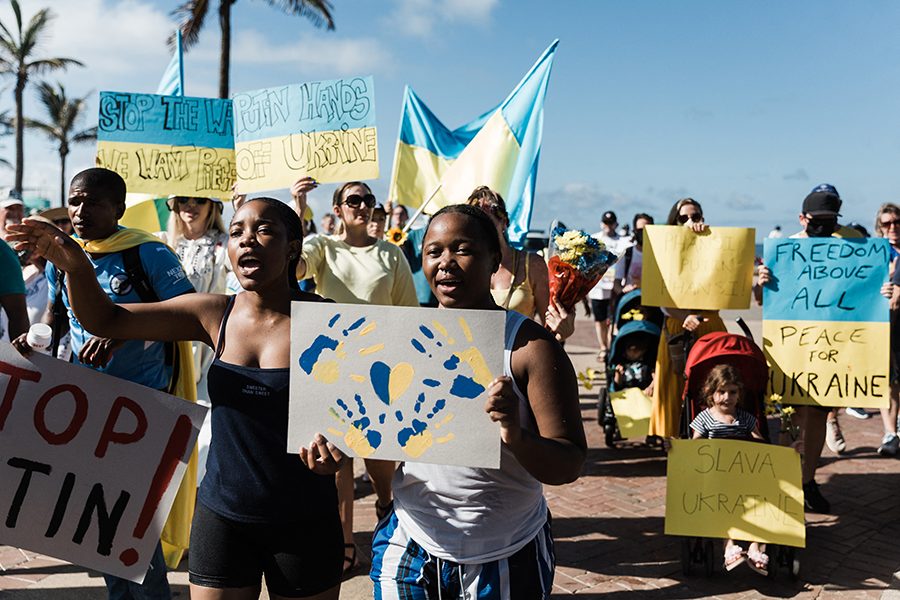
Spotlight
Russia and the Future International Order in Africa
The application of a Russian-shaped international order in Africa would have destabilizing repercussions for the continent.
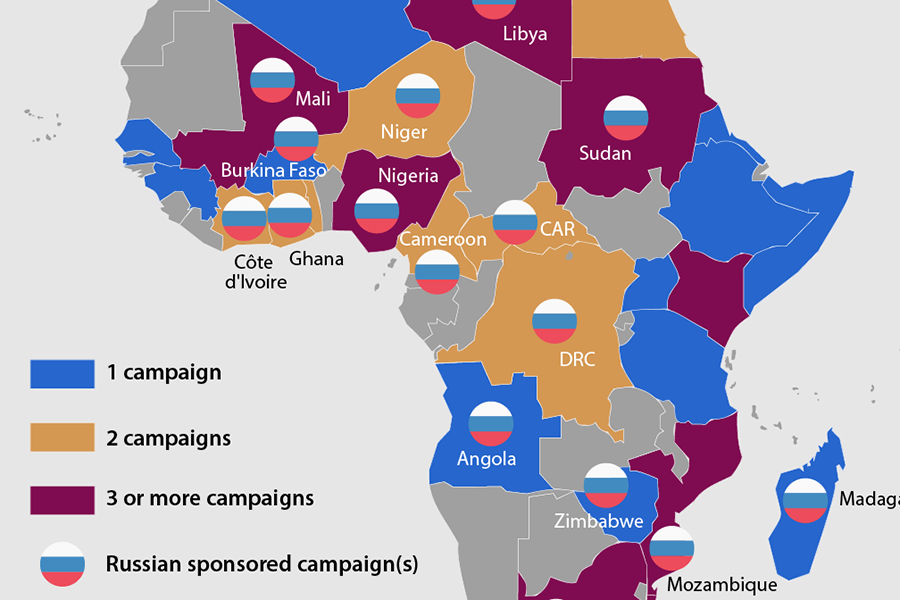
Infographic
Mapping Disinformation in Africa
Russia has pioneered a model of disinformation to gain political influence in Africa that is now being replicated by other actors across the continent.
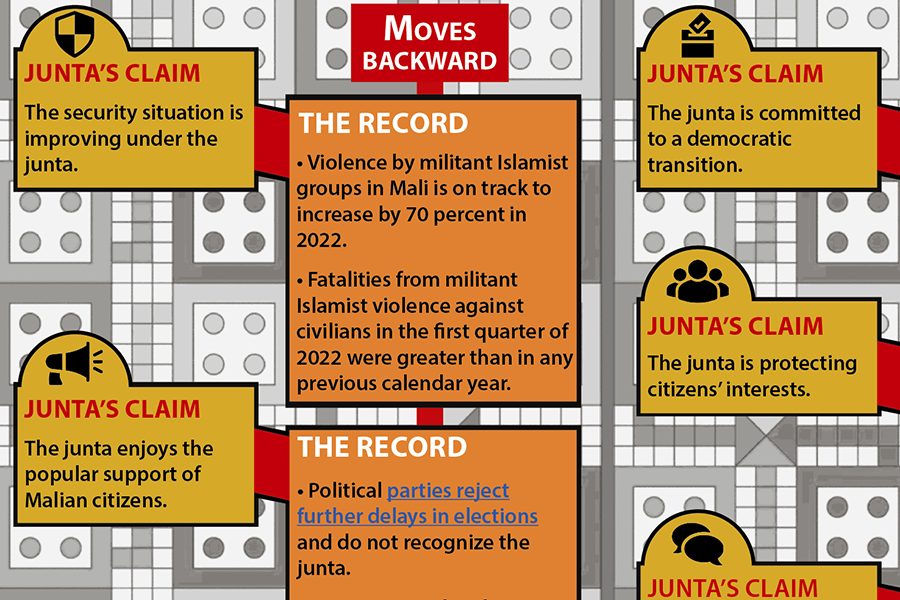
Infographic
Debunking the Malian Junta’s Claims
Mali’s military coup has thrust the country into a deeper security crisis as the junta quashes dissent and resists a democratic transition.
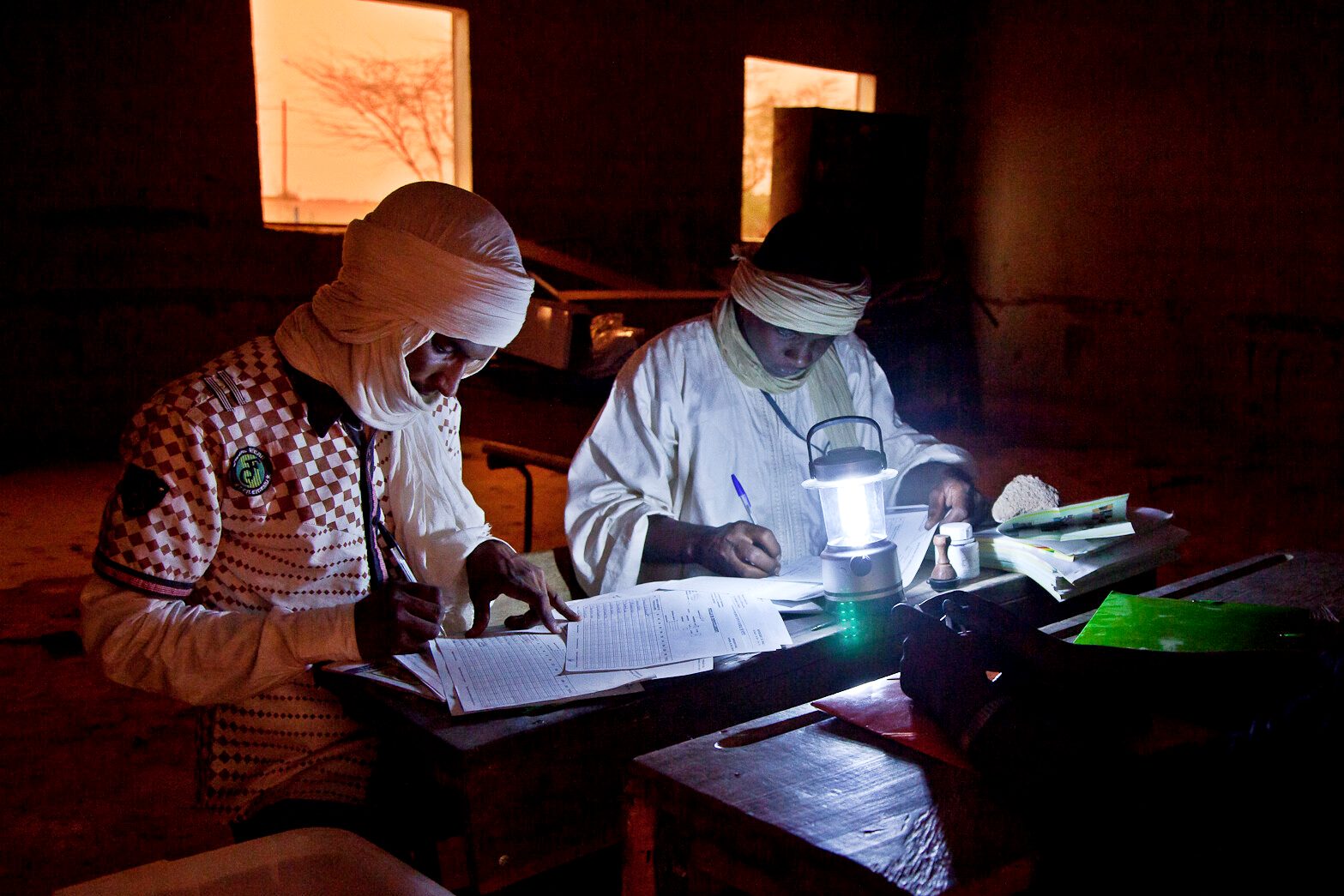
Spotlight
Africa’s Complex 2022 Elections: Restoring Democratic Processes
Responding to the coups, conflicts, and other derailments of democratic processes in recent years, Africa’s 2022 elections are, in large part, an effort to right the democratic ship of state on the continent.

Spotlight
Deluge of Digital Repression Threatens African Security
African governments are using the pretext of security to restrict digital communications and citizens’ rights. In the process, they are inadvertently contributing to economic losses and greater instability.
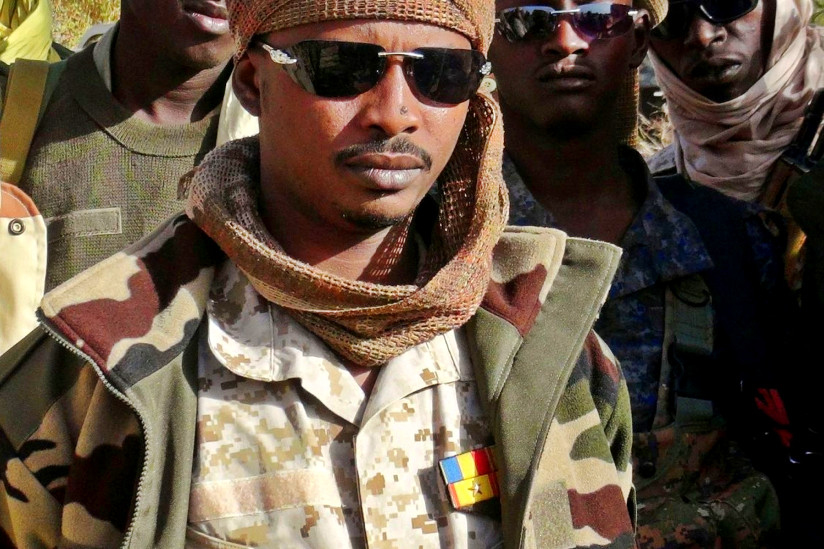
Spotlight
A Crucial Moment in Chad’s Transition
Chad's national dialogue will not achieve stability or peace as long as those who support civilian rule and civilian transition continue to be excluded from the transition.

Spotlight
Africa’s Coups and the Role of External Actors
The recent rise in coups in Africa reflects a waning regional and international willingness to enforce anti-coup norms. Reversing the trend requires incentivizing democracy and consistently imposing real costs on coup makers.
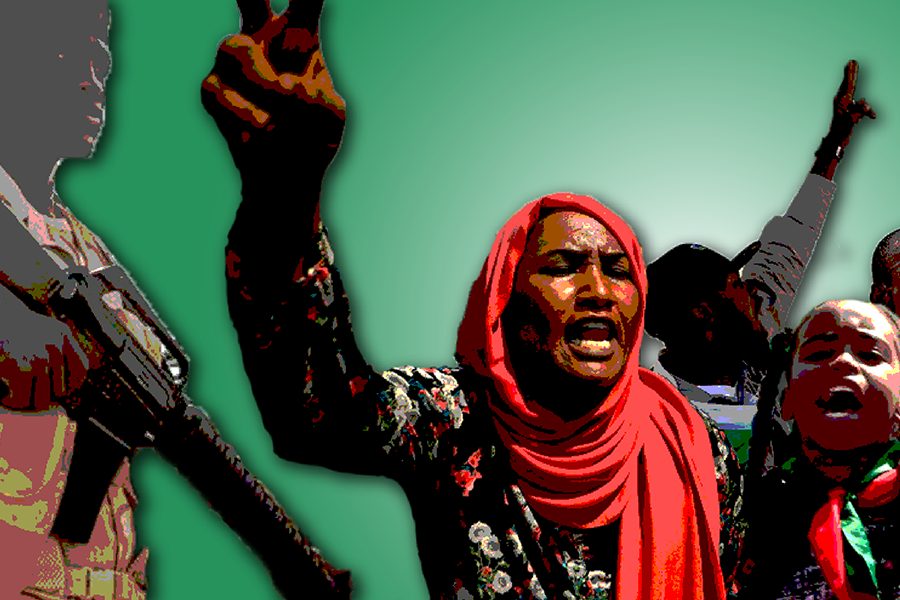
Spotlight
What the Post-Coup Agreement Means for Sudan’s Democratic Transition
Sudan’s democratic transition is under duress as the military seeks validation for its hold on power via the reinstatement of a figurehead civilian prime minister.
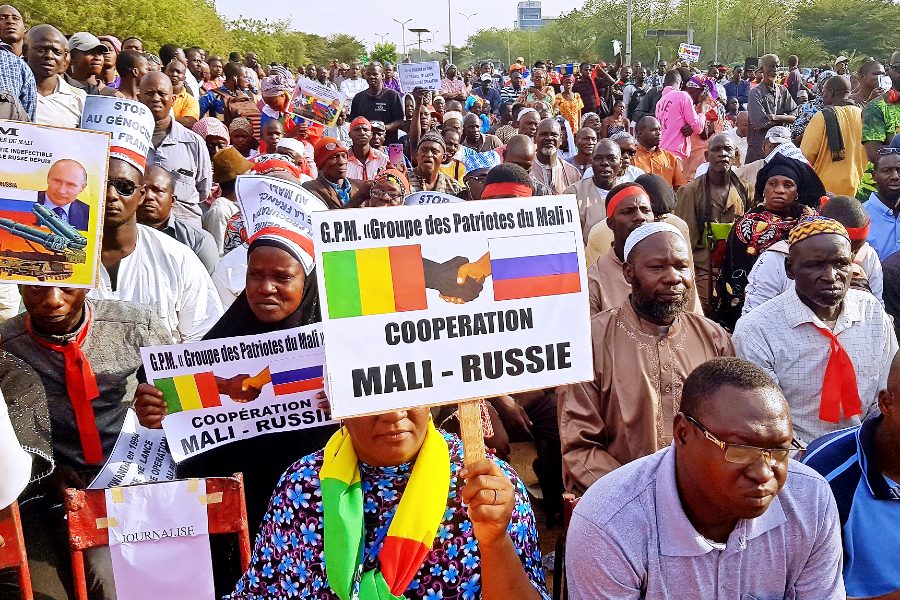
Spotlight
Russia’s Wagner Play Undermines the Transition in Mali
The prospective deployment of Russia’s Wagner mercenaries should not be confused with addressing Mali’s security situation but is a means of expanding Russian influence while propping up the military junta.

Spotlight
Walking Back the Coup in Guinea
Recognition of the coup in Guinea would incentivize future military interventions. Yet, simply reinstating President Alpha Condé would not restore democracy. Several possible paths could be followed to return Guinea to constitutional order.
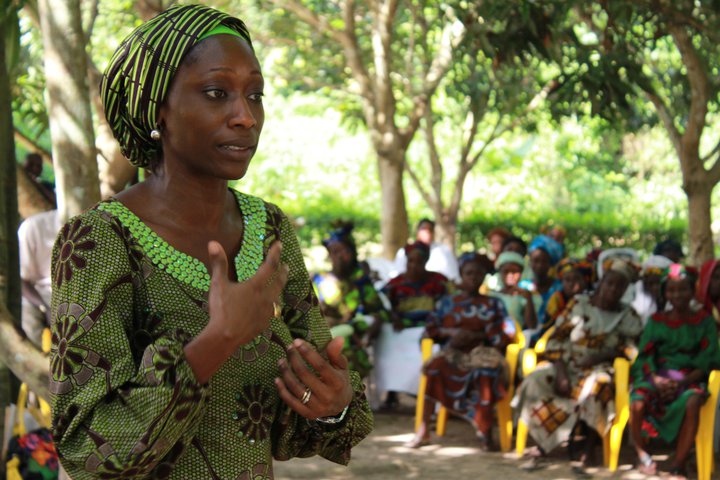
Expert Publication
Presidential Term Limits Key to Democratic Progress and Security in Africa
Term limit norms in Africa have been deteriorating rapidly since 2015, reversing a positive trend over the previous two decades. This trend has important implications since longer presidential tenures are linked to increased corruption, reduced civil liberties, and higher rates of conflict. Even after term limit restrictions have been lifted, there is a pattern of incumbents manipulating electoral outcomes to stay in power. This reflects the declining popularity of these leaders and points to the self-interested motivations for their extended tenures vis-à-vis broader service to the public. It further highlights that the evasion of term limits does not happen in isolation but is part of a broader pattern of undermining the rule of law and weakening democratic institutions. Failure to reverse the downturn in respect for term limits risks bringing Africa back to an era of de facto “presidents for life” and one-party states.
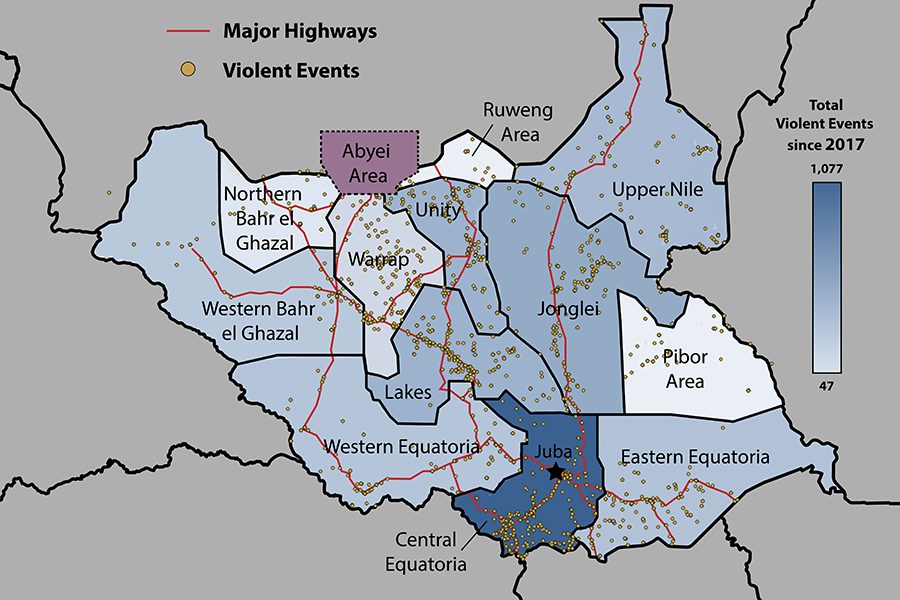
Infographic
10 Years after Independence South Sudan Faces Persistent Crisis
The ongoing forced displacement of a third of the population and a conflict-driven food crisis threatening more than half of all South Sudanese underscores the grave human costs of the country’s destructive politics.
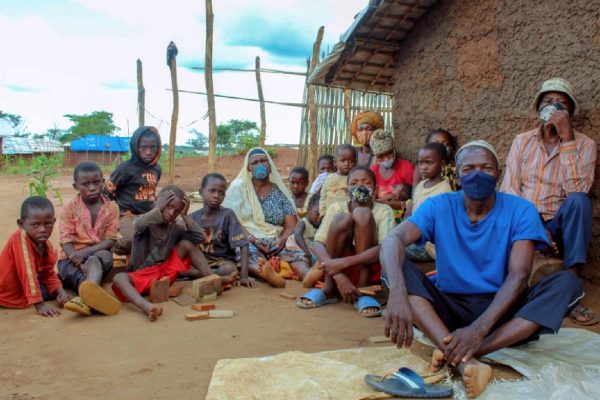
Spotlight
Cries from the Community: Listening to the People of Cabo Delgado
Stabilizing northern Mozambique will involve more than defeating violent extremists. It will also require rebuilding trust with marginalized and traumatized local communities.
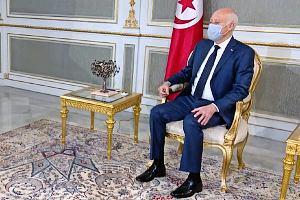
Spotlight
Tunisia in Crisis: An Explainer
Tunisia is facing a constitutional crisis rooted in challenges to the separation of powers and the reach of executive authority. The outcome has implications not only for Tunisia but prospects for democracy across North Africa.
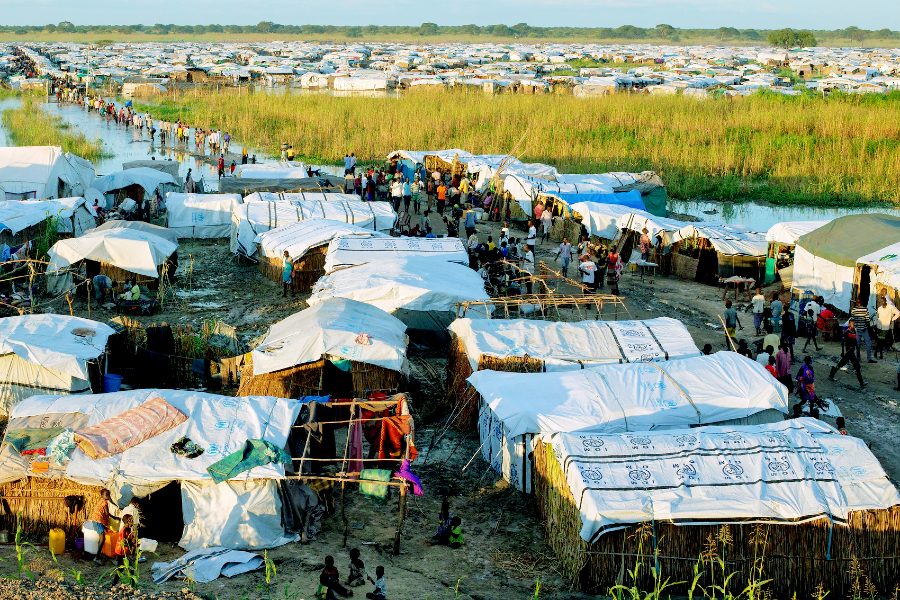
Spotlight
Lessons from a Decade of South Sudanese Statehood
The catastrophic levels of instability that have engulfed South Sudan since 2013 demand a restructuring of governance and security institutions to alter the tragic trajectory of Africa’s youngest state.
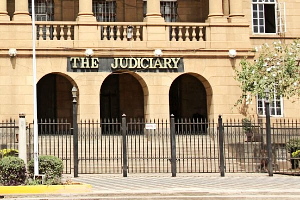
Spotlight
Justice and Rule of Law Key to African Security
The integration of justice initiatives within conventional security efforts can mitigate conflict, improve societal resilience, and build a stronger culture supportive of the rule of law.
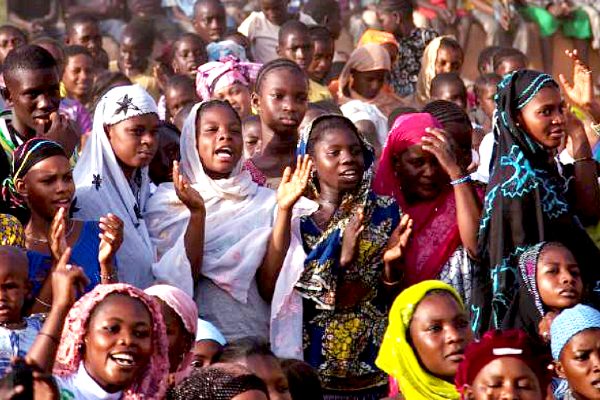
Spotlight
African Youth Engaging in Peace and Security
Despite challenges of unemployment, corruption, entrenched political leadership, and political violence, many African youth have found constructive avenues to promote peace, effective governance, and reform.
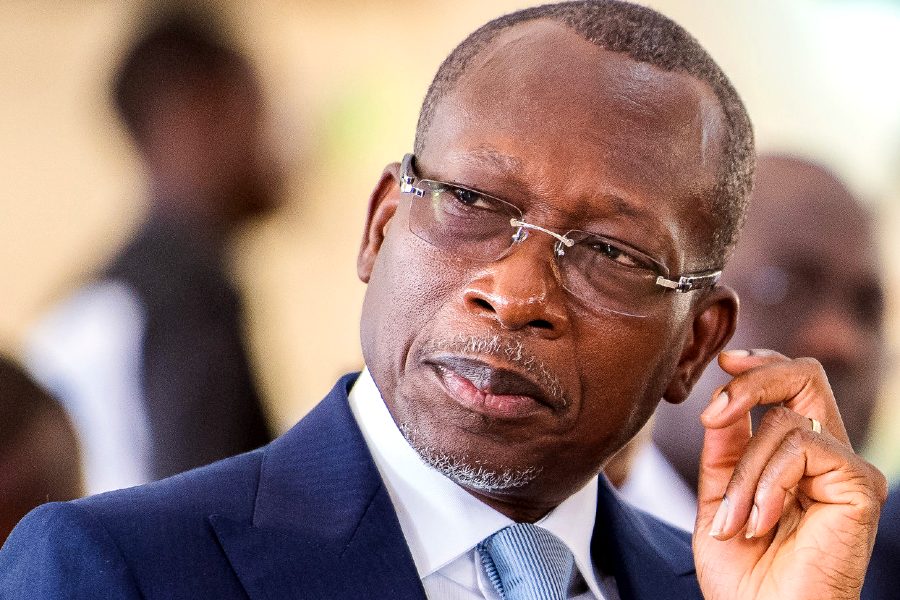
Spotlight
The Dismantling of Benin’s Democracy
President Patrice Talon’s manipulation of electoral rules and cooption of democratic processes have caused Benin to slide quickly from a multi-party democracy to a semi-authoritarian regime, portending heightened instability.
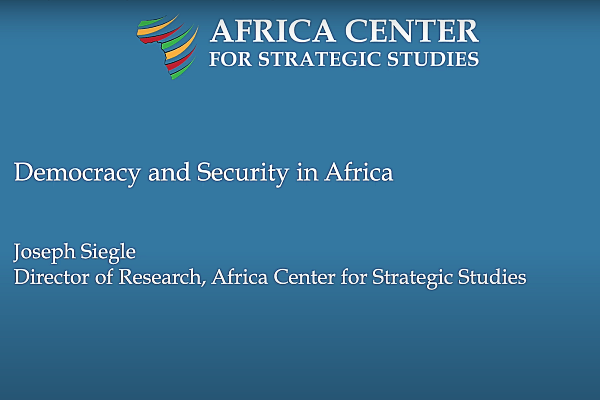
Video
Democracy and Security in Africa
Africa Center Director of Research Joseph Siegle reviews a snapshot of Africa’s ongoing conflicts, which reveals a distinctive governance pattern. In addition to being more conflict prone, Africa’s autocracies are a focal point for instability on the continent.
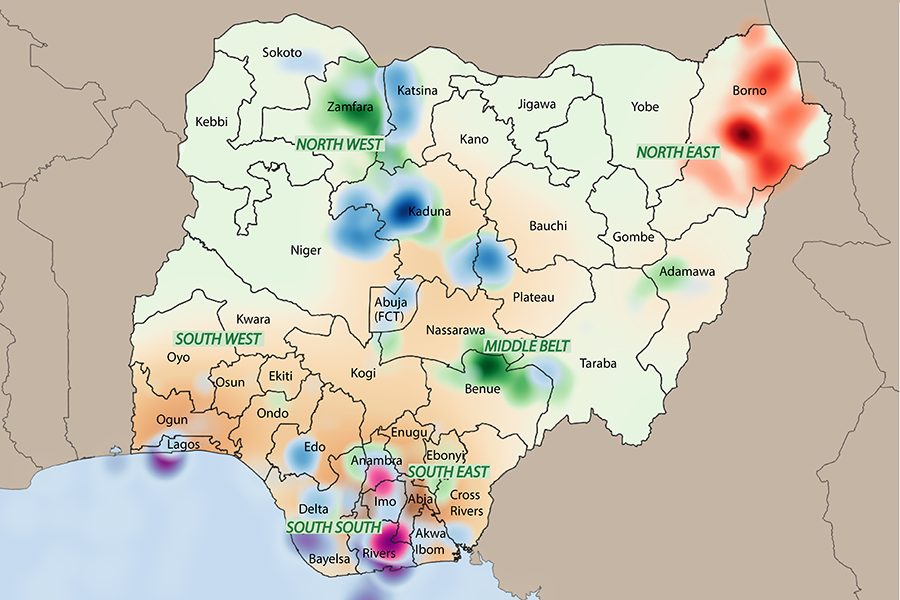
Spotlight
Nigeria’s Diverse Security Threats
Nigeria faces an array of security challenges beyond Boko Haram. Distinguishing these threats and understanding their socio-geographic contours is essential for adapting customized solutions.
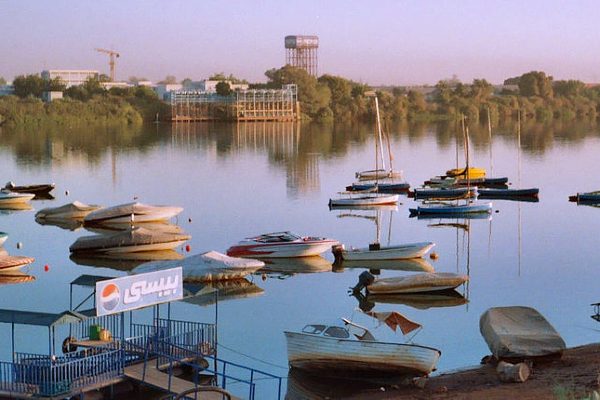
Spotlight
The Sudanese Military’s Interests in Civilian Rule
Proactive management of the transition to civilian rule would afford the Sudanese military more stability, budgetary support, and professional benefits.
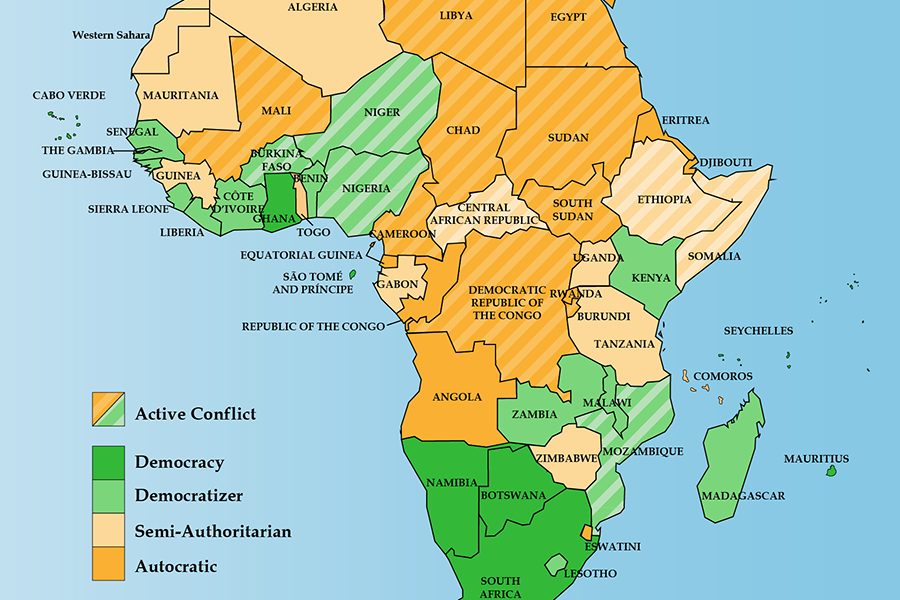
Infographic
Autocracy and Instability in Africa
The lack of legitimacy and accountability are at the root of many of Africa’s armed conflicts, reflecting an inability of these political systems to accommodate participation, contestation, and power-sharing.
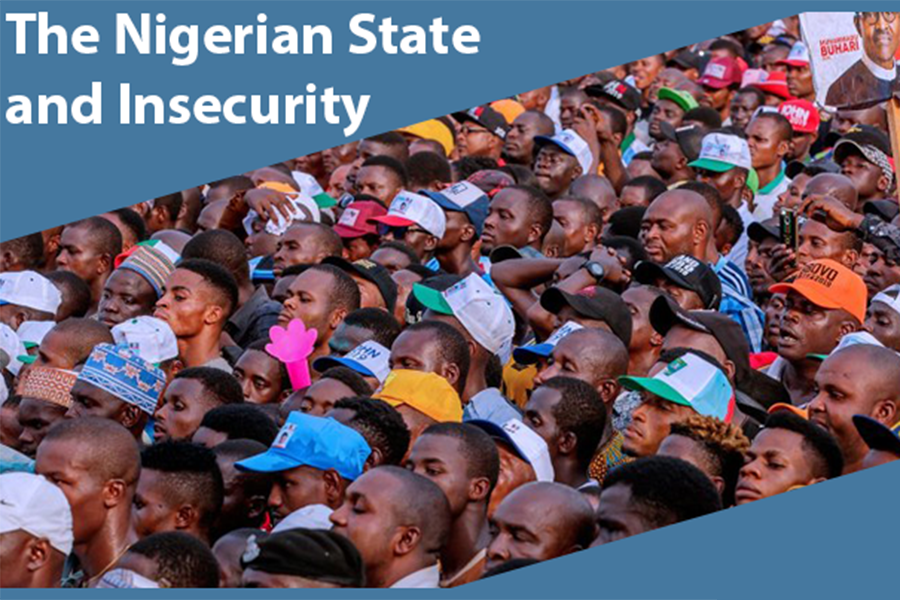
Video
The Nigerian State and Insecurity
Nigeria faces a plethora of security challenges ranging from violent extremism, to farmer-herder conflict, banditry, a revived secessionist movement, police repression, piracy, and attacks on oil infrastructure, among others. In this roundtable discussion, experts representing diplomatic, scholarly, and practitioner perspectives discuss the links between these security challenges and Nigeria’s patronage-based state institutions. Key themes were the need to rethink the structure of the Nigerian state, identify means of strengthening national identity, harness the aspirations of youth to advance governance reform, create more accountability within the security services, and avoid the militarization of every security challenge.
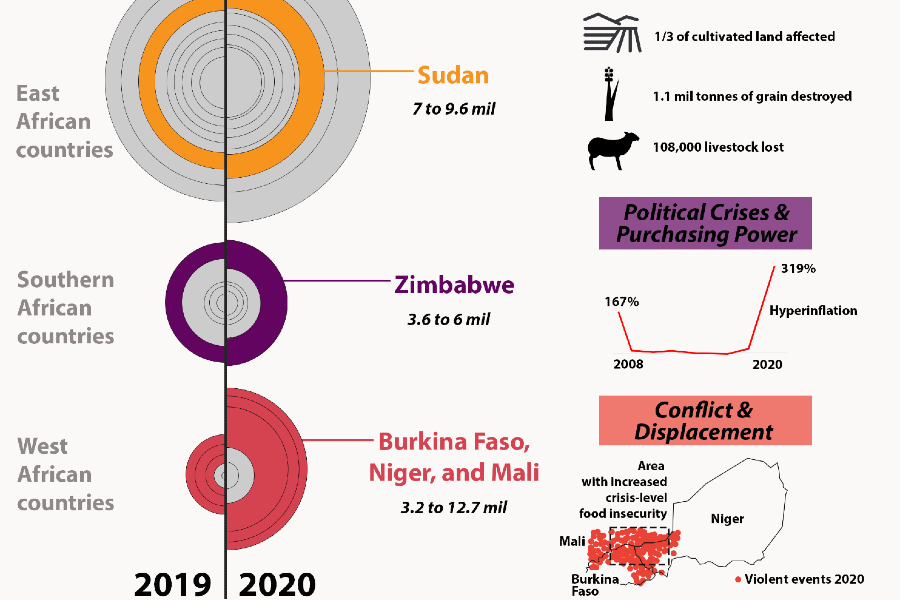
Infographic
Food Insecurity Crisis Mounting in Africa
Acute food insecurity in Africa has increased by over 60 percent in the past year and threatens to widen further as the effects of COVID-19 exacerbate other drivers such as conflict and political mismanagement.
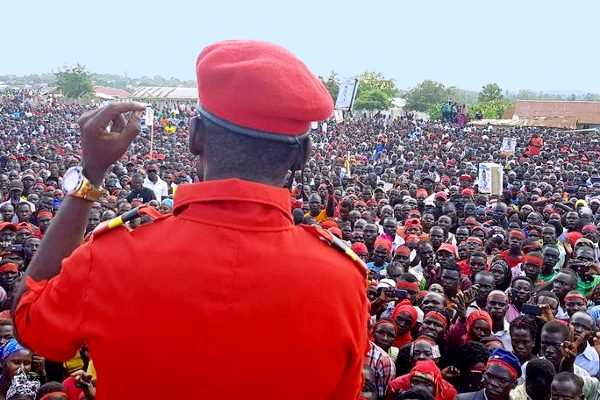
Spotlight
Untangling Post-Election Uganda
Sharp losses by the long-ruling NRM party reveal a shifting political landscape in Uganda, reflecting the will of a younger and more energized electorate looking for change.
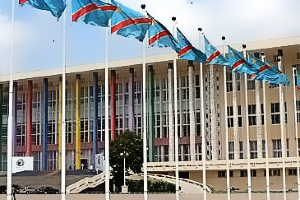
Spotlight
Power Shift in the DRC Cracks open a Door to Reform
A shift in the balance of power within the National Assembly enhances the influence of President Felix Tshisekedi and represents a step toward long-delayed democratic reforms.
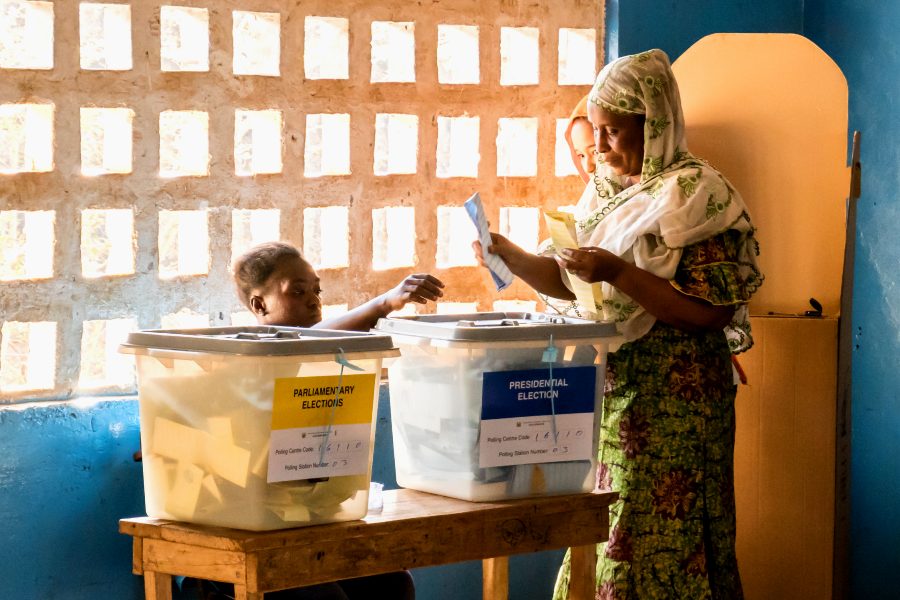
Spotlight
Taking Stock of Africa’s 2021 Elections
A wide spectrum of credibility marks the 13 African elections slated for 2021. This has direct implications for the legitimacy of the leaders that emerge and their ability to navigate the security challenges they face.
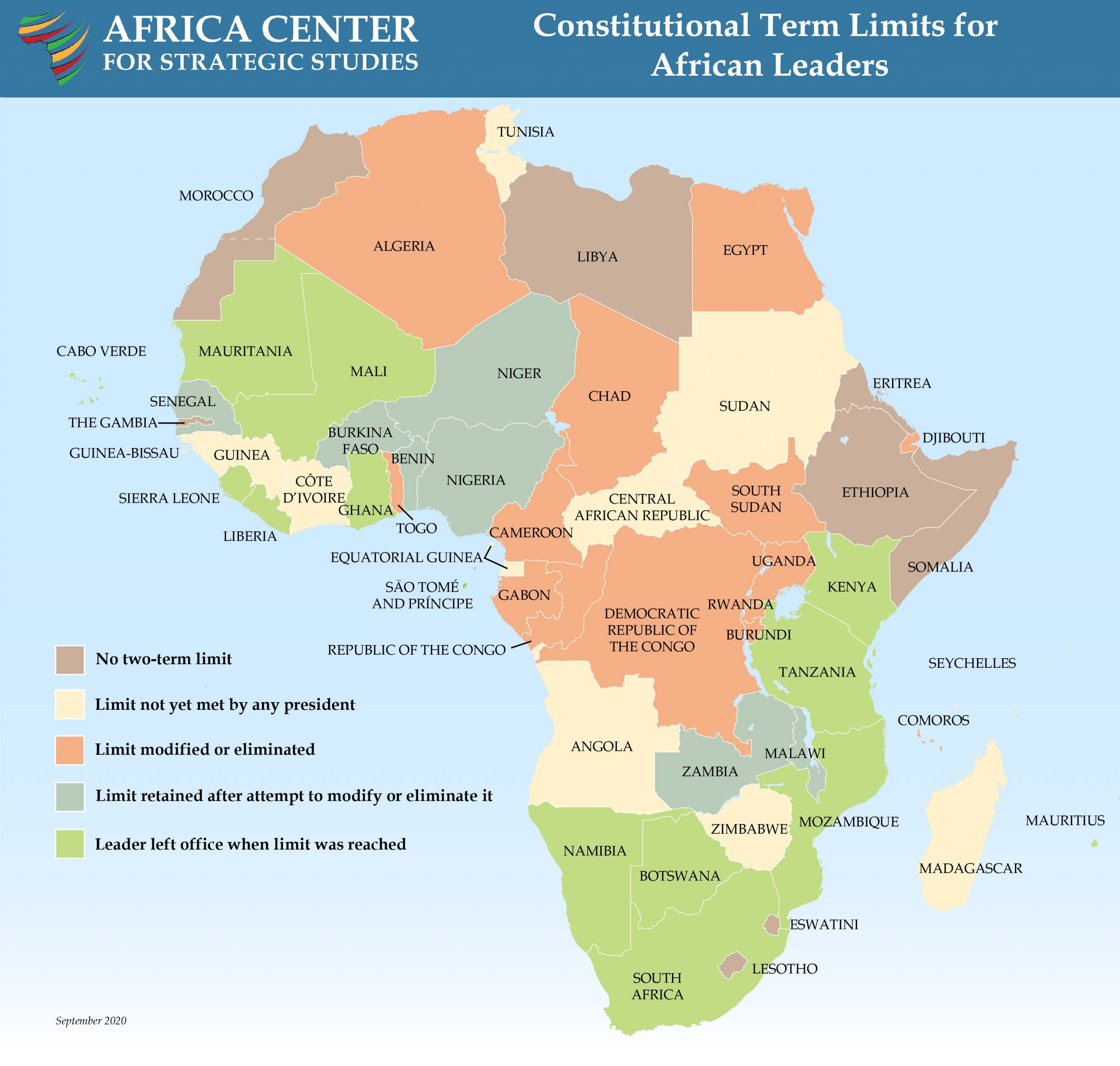
Infographic
Circumvention of Term Limits Weakens Governance in Africa
A growing pattern of evading term limits in Africa carries far-reaching consequences for the continent’s governance, security, and development.

